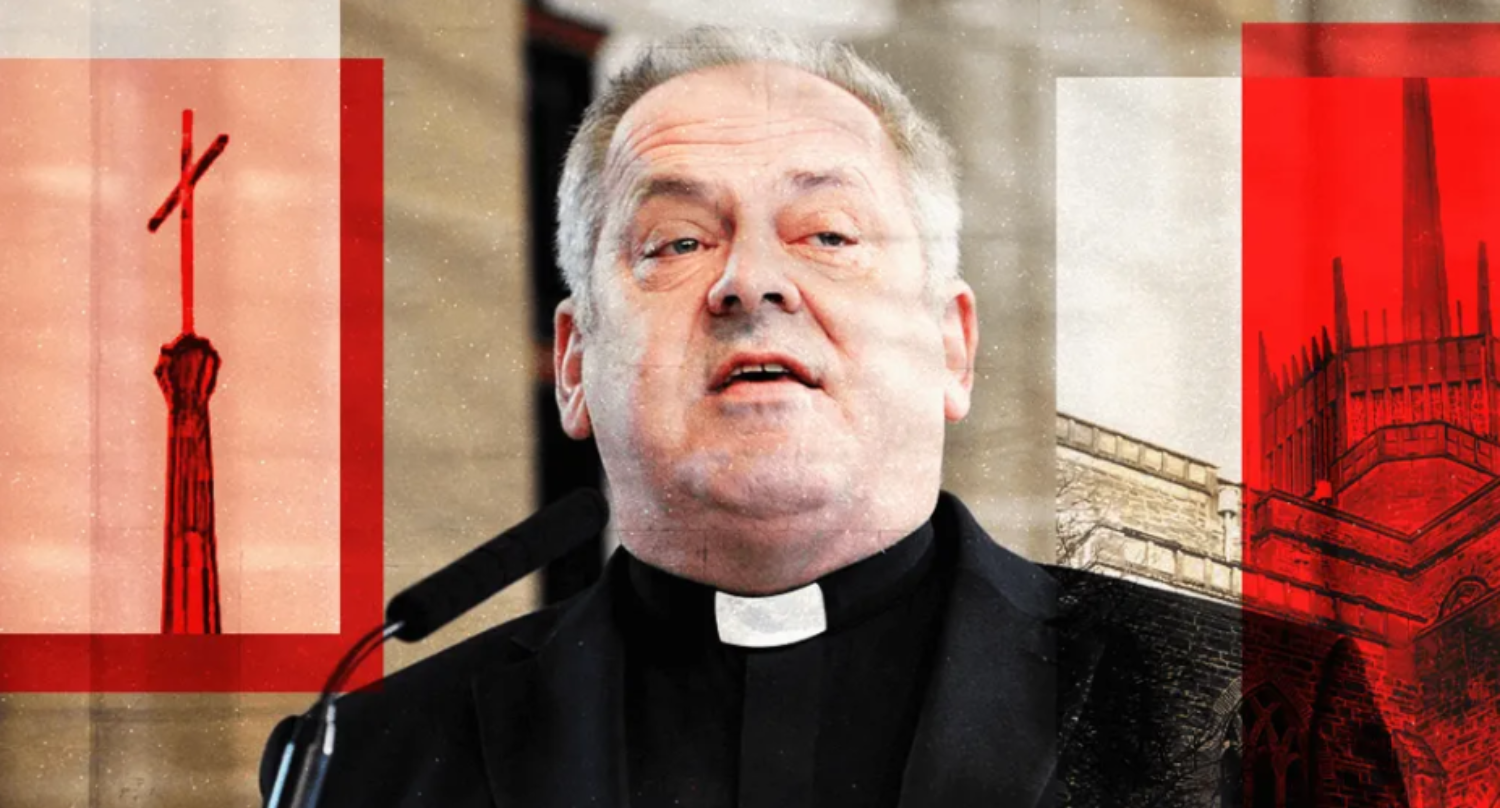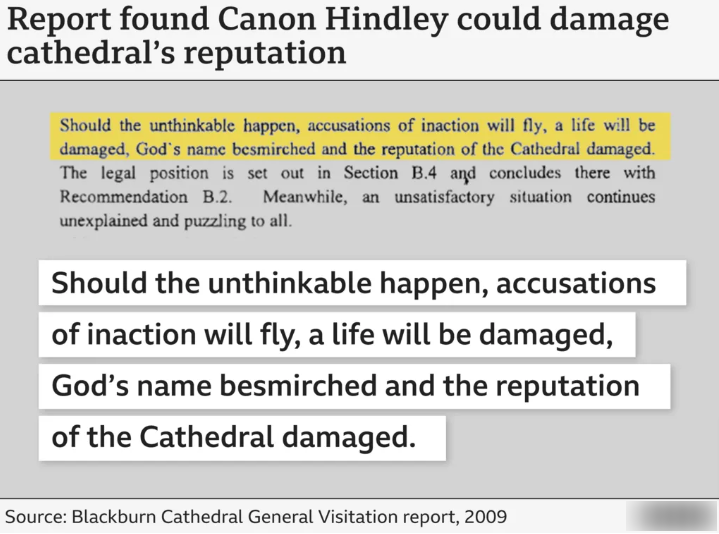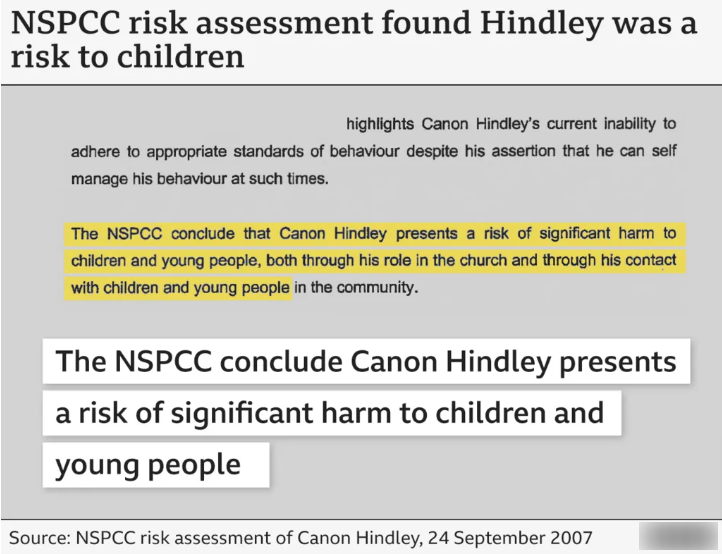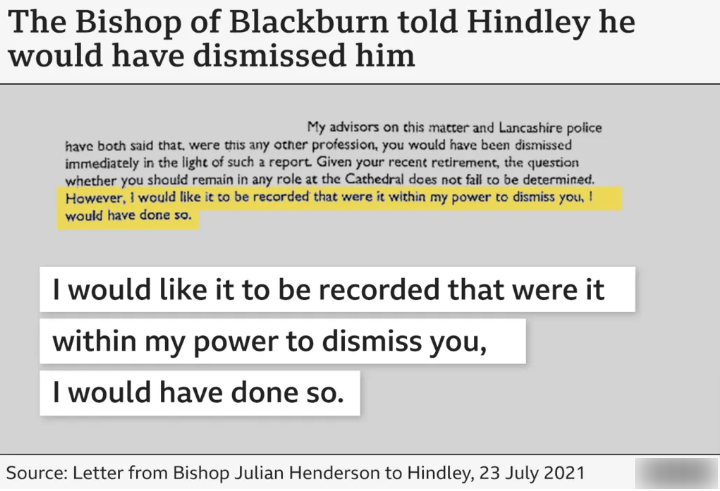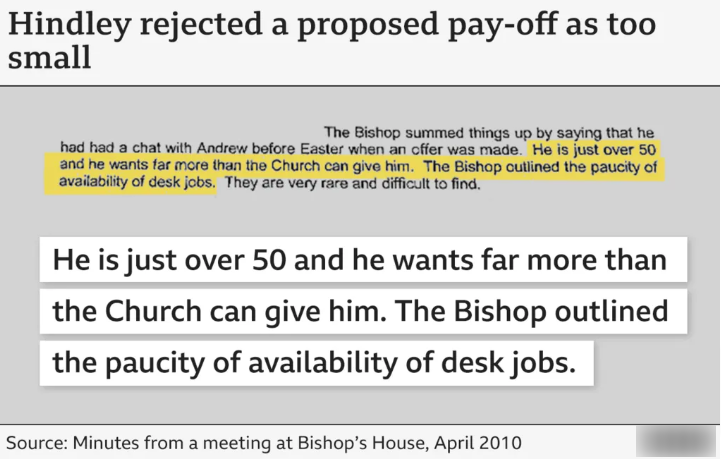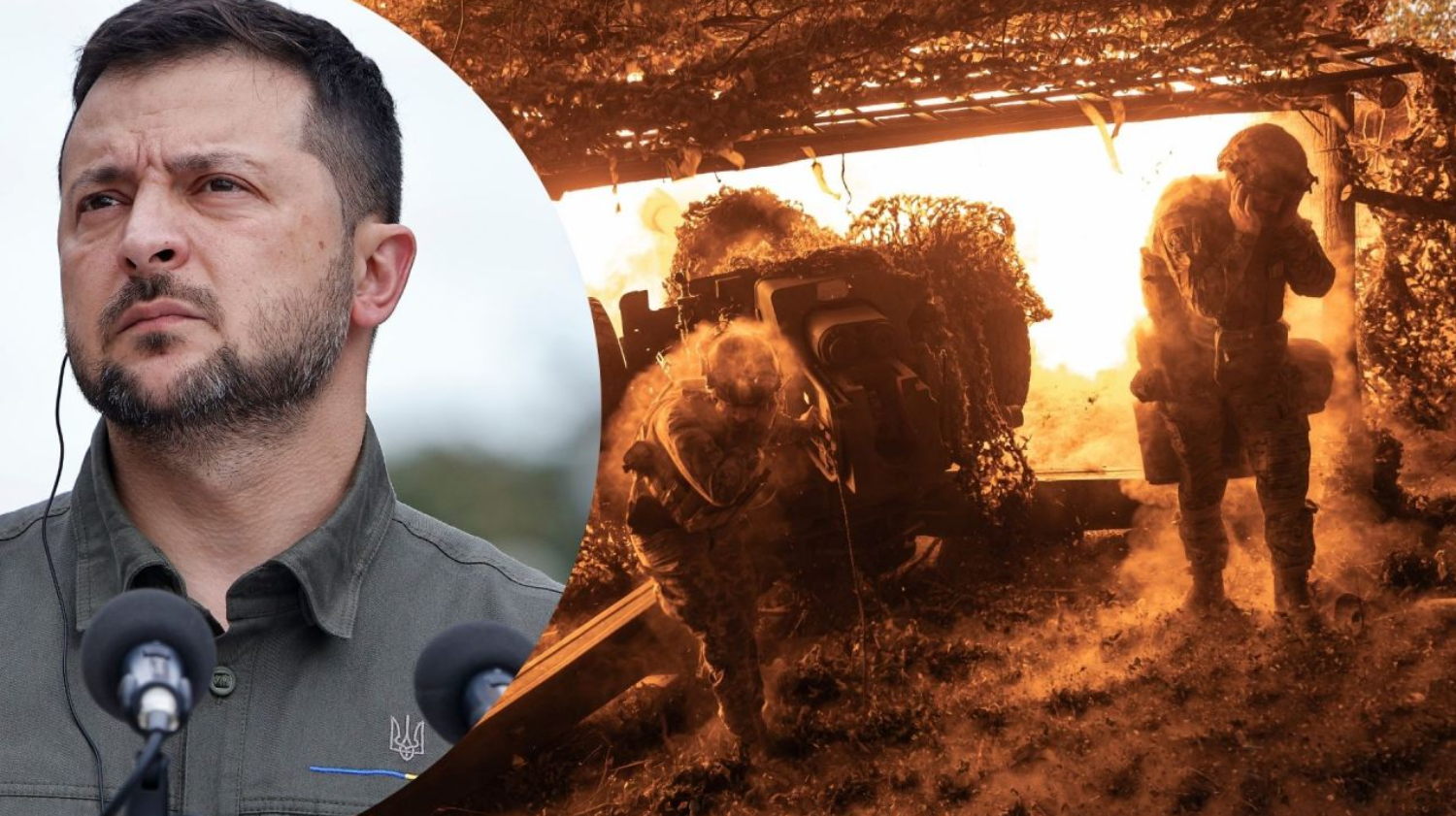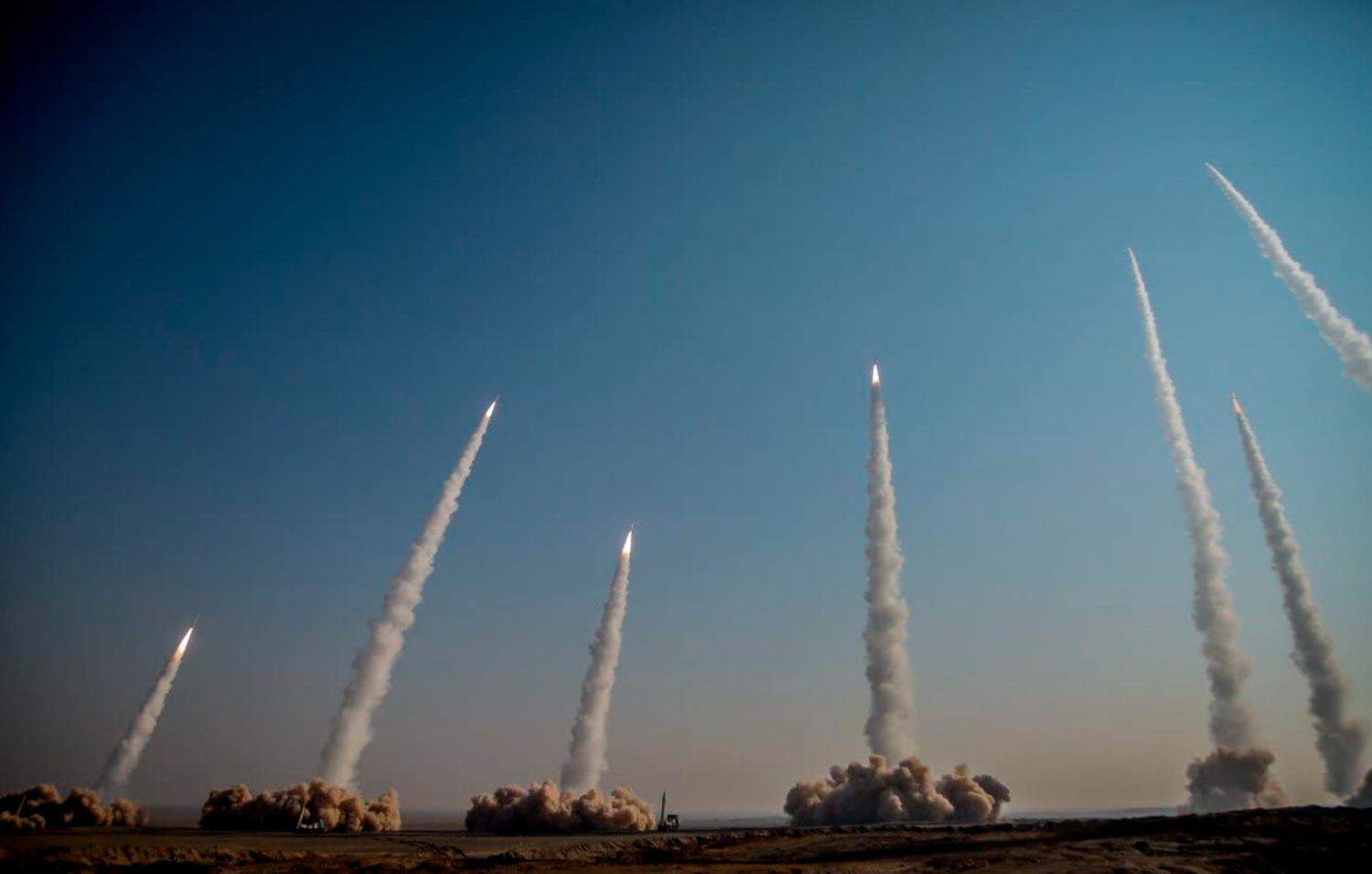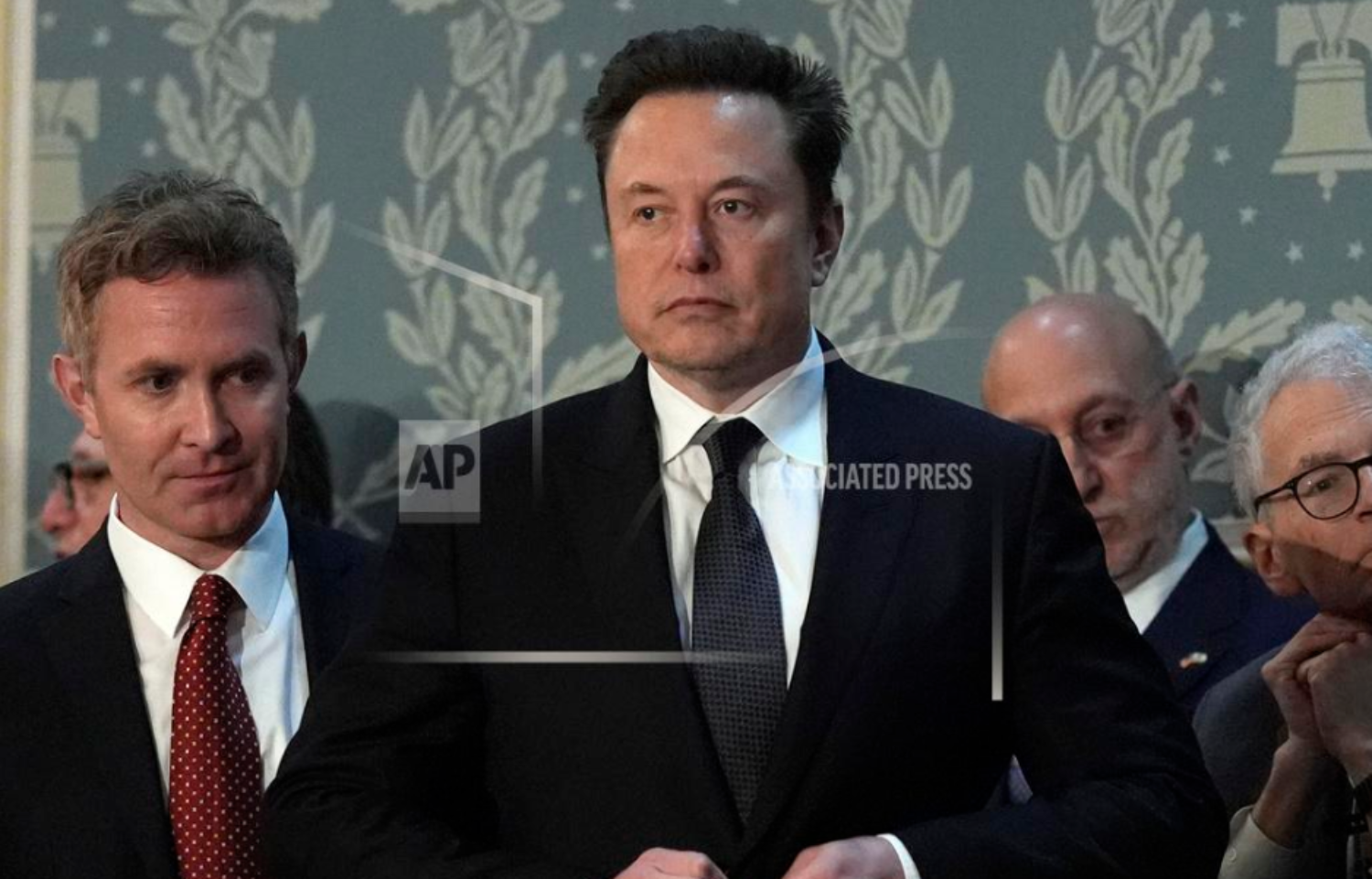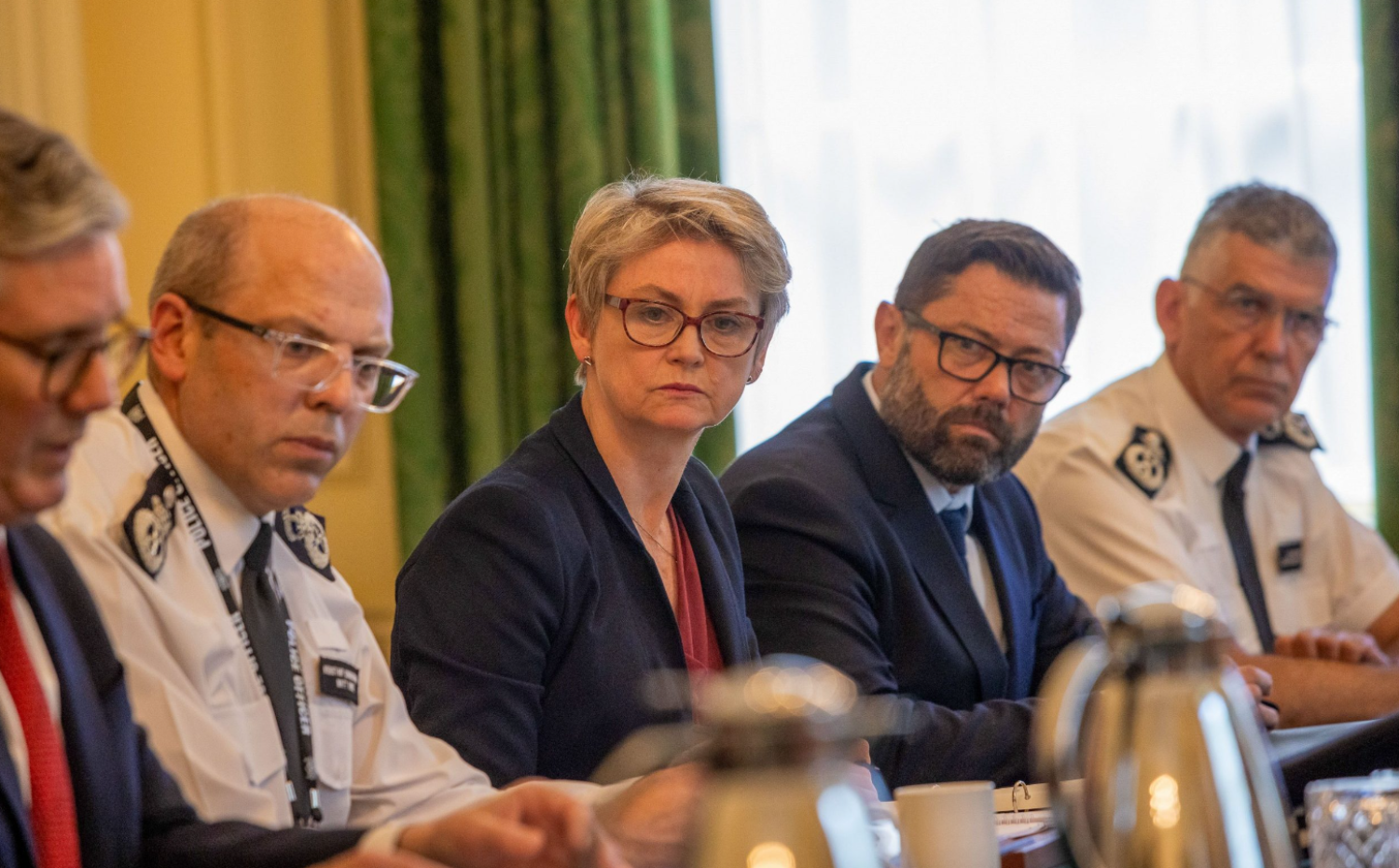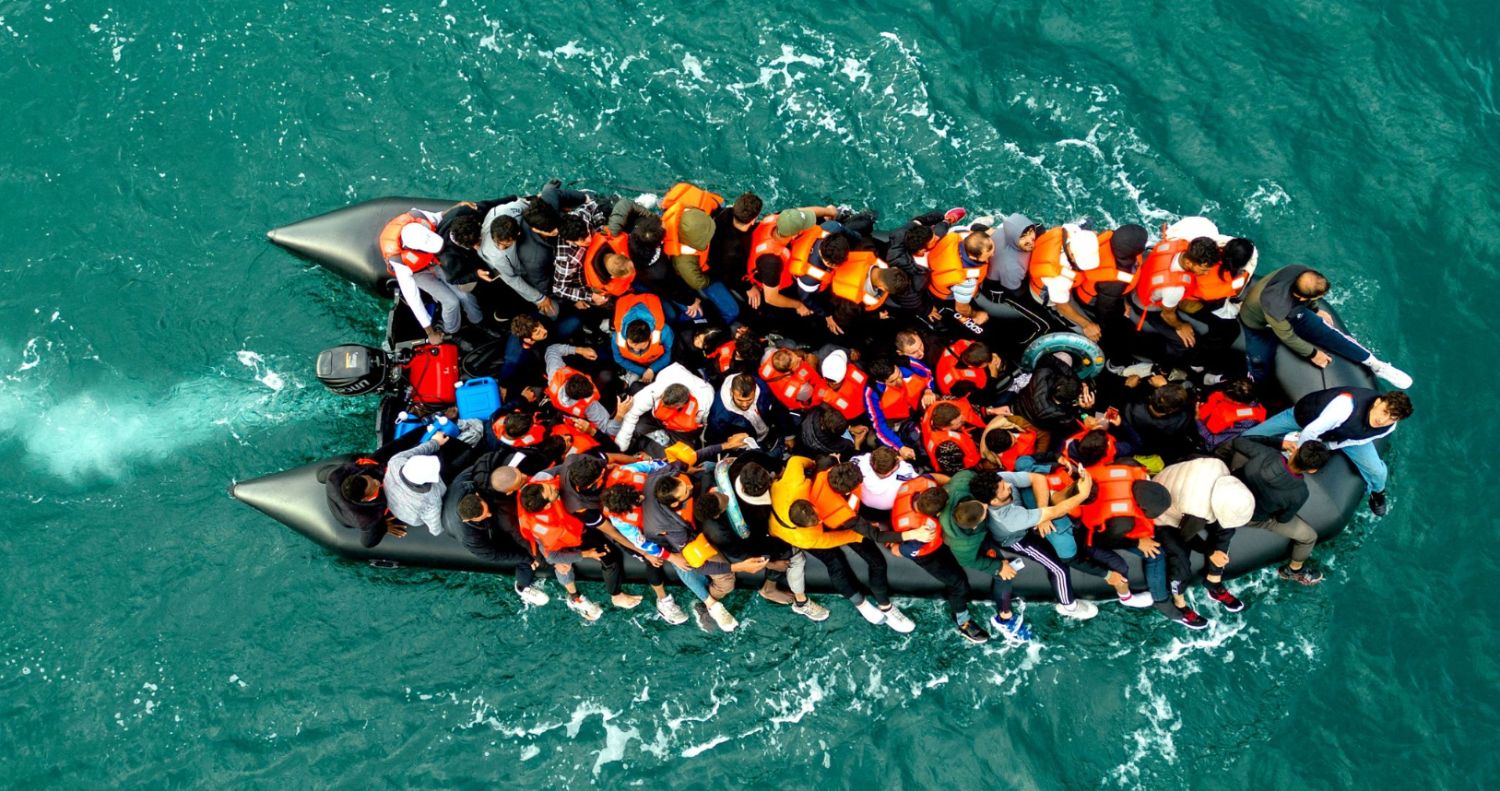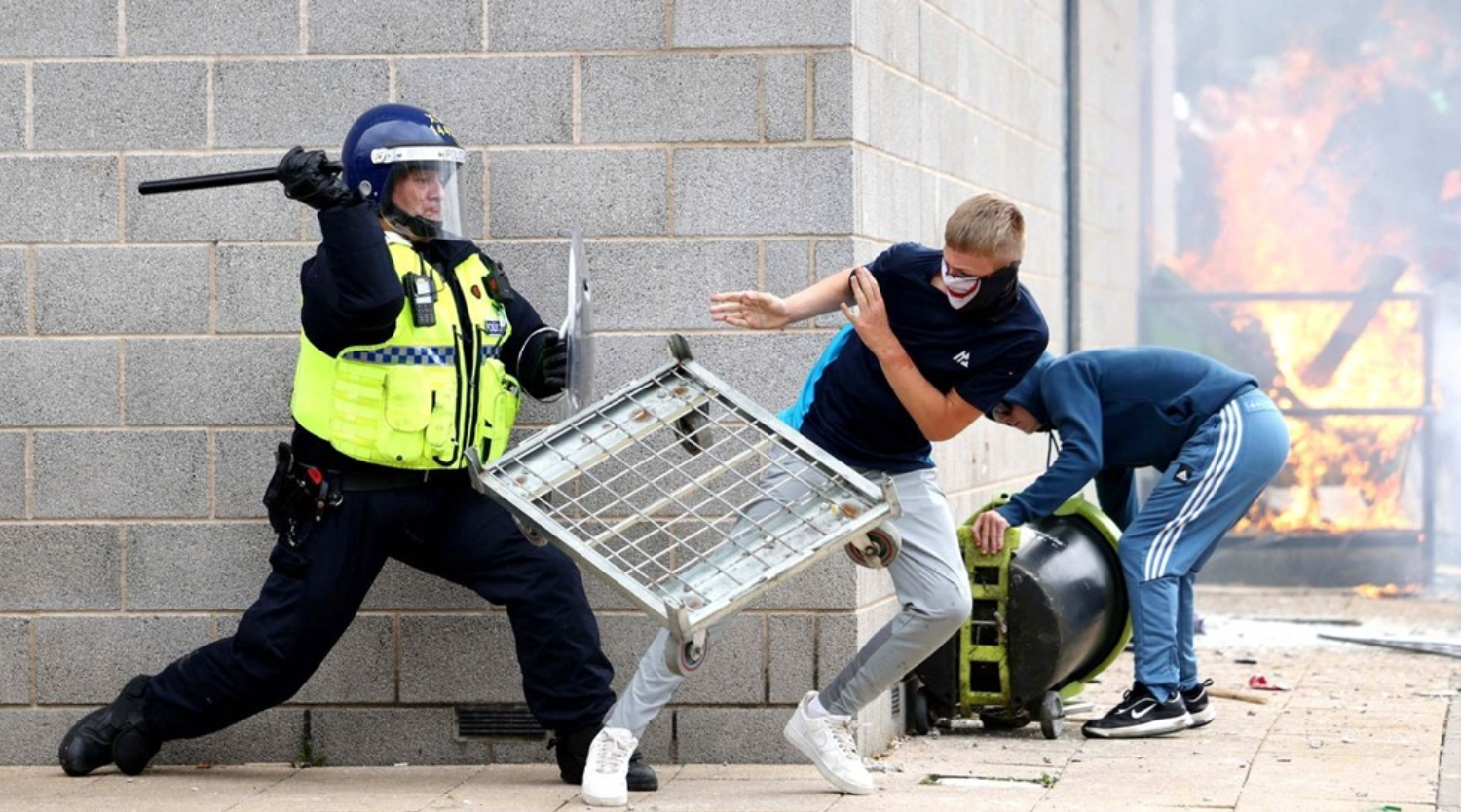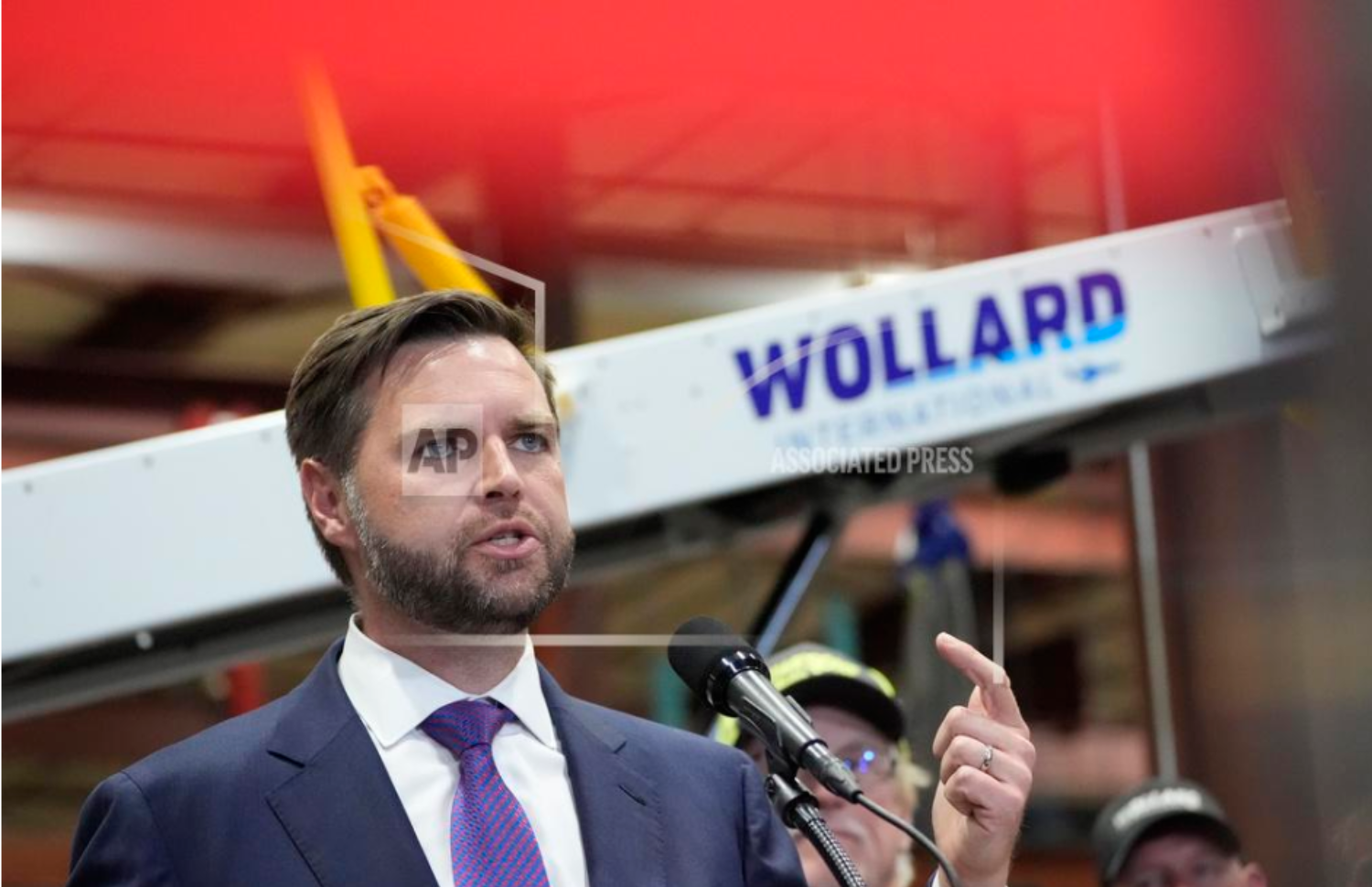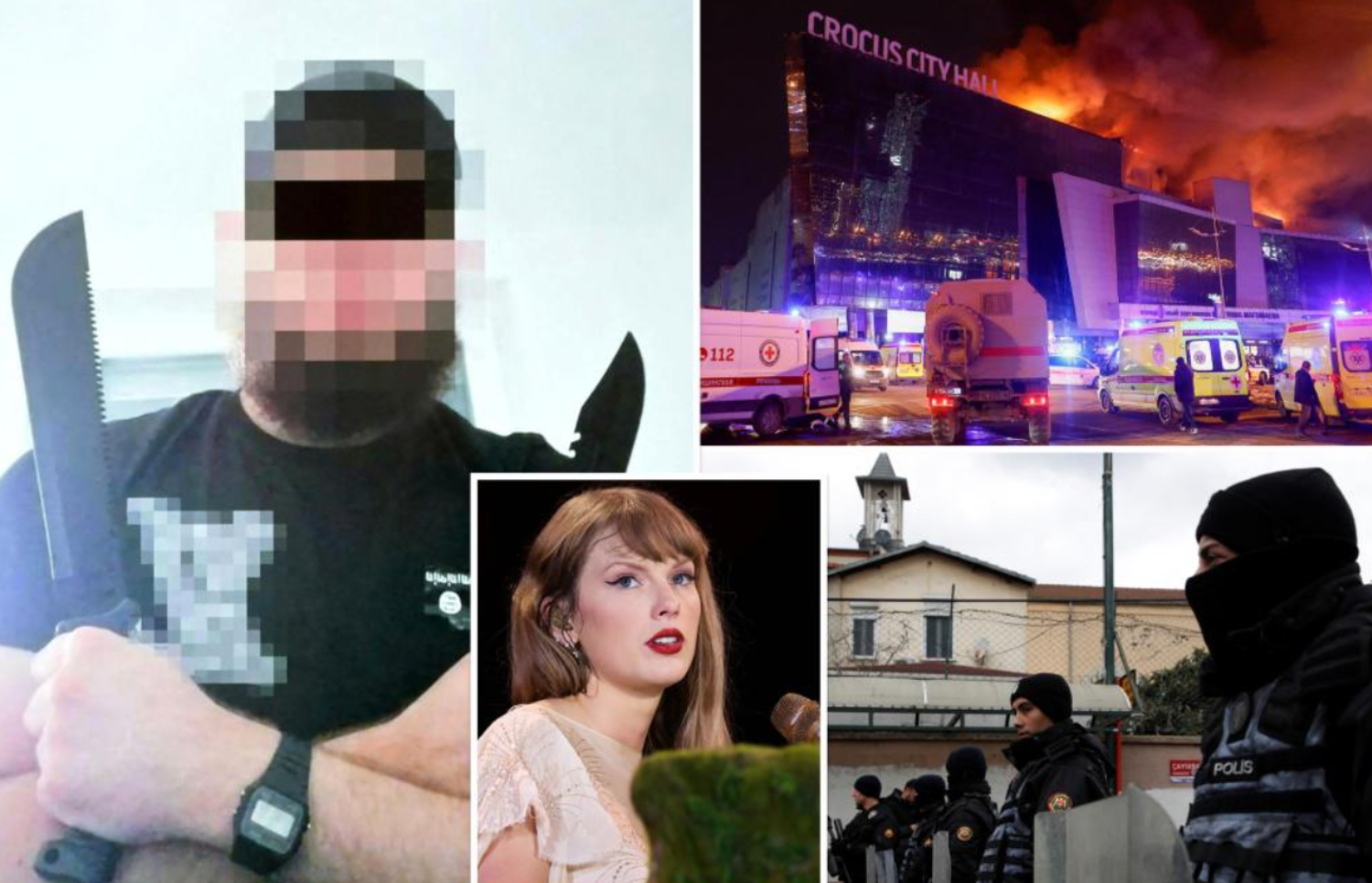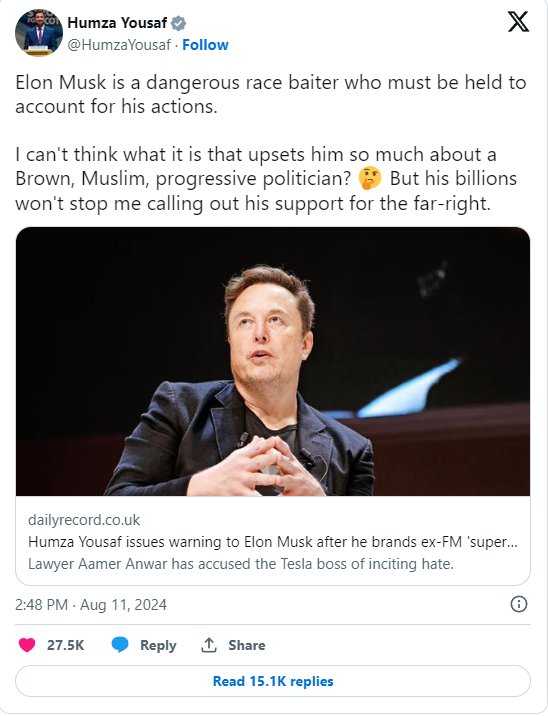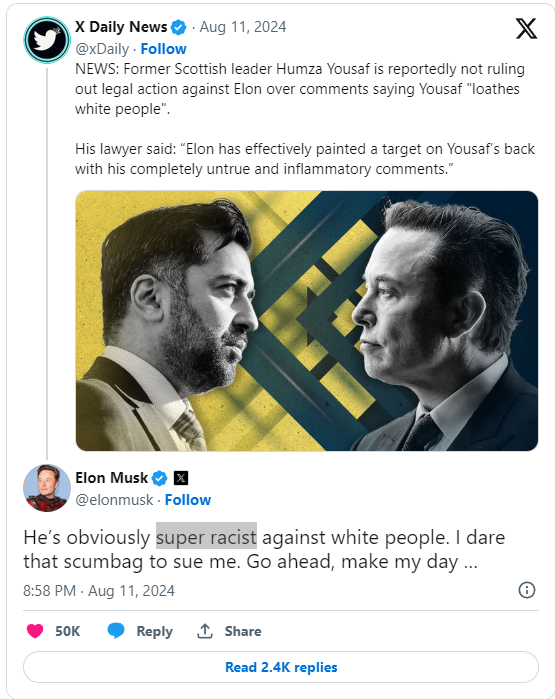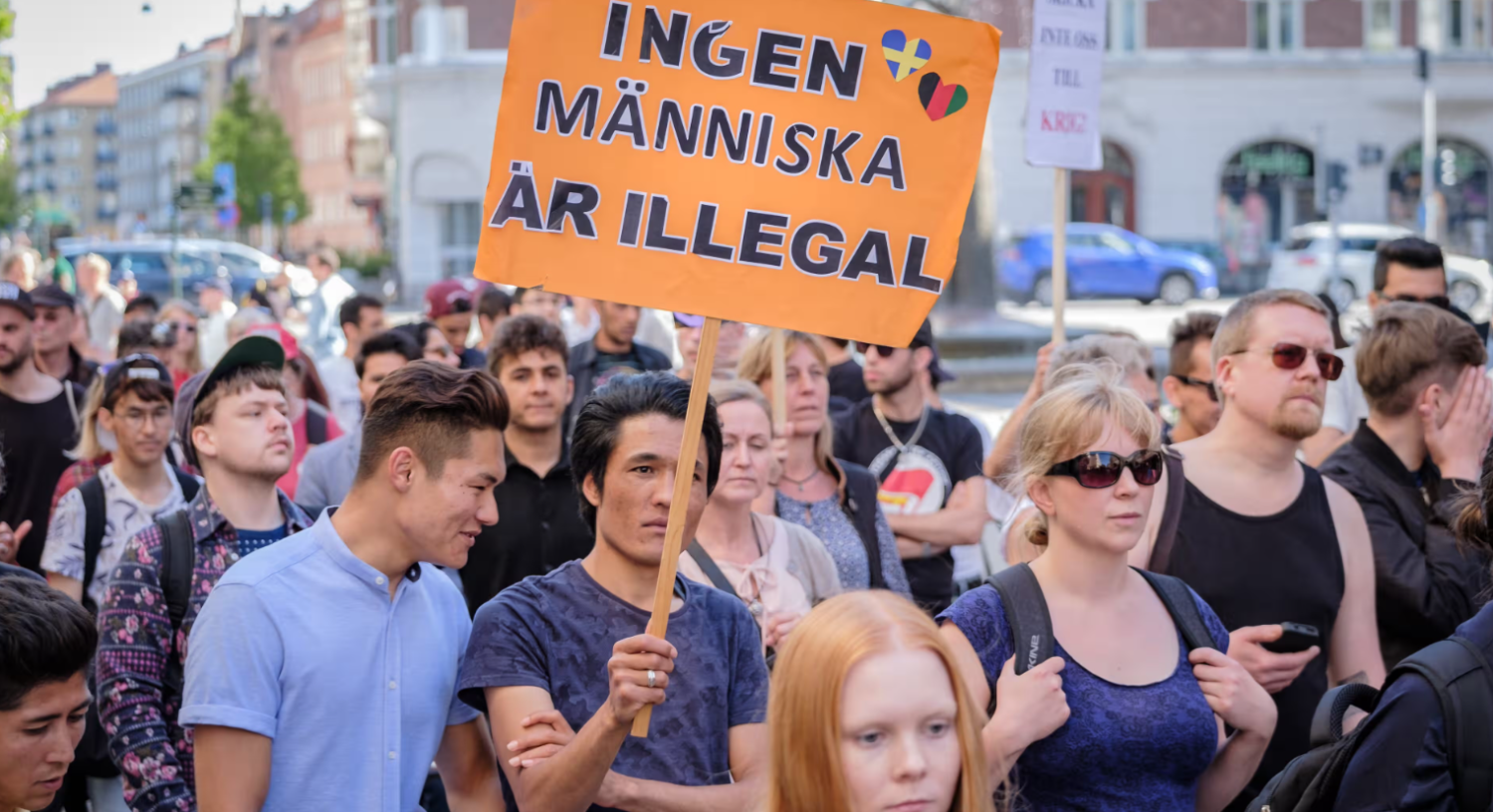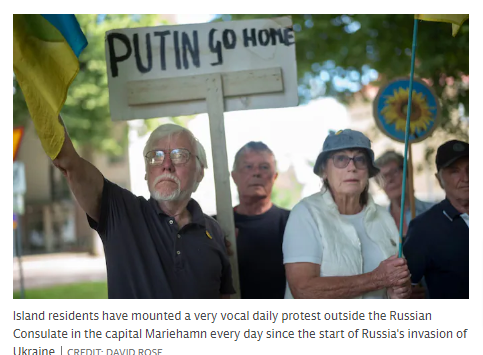-
Posts
10,712 -
Joined
-
Last visited
Content Type
Events
Forums
Downloads
Quizzes
Gallery
Blogs
Everything posted by Social Media
-
In a recent investigation, the Church of England has found itself at the center of a deeply troubling controversy involving a priest, Canon Andrew Hindley, who has been assessed as a potential risk to children and young people. This issue has sparked intense scrutiny over the Church's handling of such sensitive matters, revealing a complex web of allegations, legal maneuvers, and internal discord. Canon Hindley served in the Blackburn diocese from 1991 to 2021, during which time he was subjected to five police investigations. These investigations were related to allegations of sexual assault, yet despite the gravity of these claims, Hindley was never charged with any criminal offenses. He has consistently maintained his innocence, asserting that he has never posed any safeguarding risk to anyone. Nevertheless, the controversy surrounding him has cast a long shadow over the Church, raising questions about its ability to protect the vulnerable. The Church's response to the situation has been met with significant criticism. A senior member of staff at Blackburn Cathedral, Rowena Pailing, resigned over a financial settlement made to Canon Hindley, citing it as a betrayal of the Church's duty to protect victims and survivors. Pailing, who served as the cathedral's vice-dean and head of safeguarding, described the concerns about the priest as "an open secret" among senior clergy. She was particularly disturbed by the Church's decision to prioritize its reputation and the protection of the alleged abuser over the care and support of victims. The former Bishop of Blackburn, Julian Henderson, defended the financial settlement as the "only option" left to the Church to protect children and vulnerable young people from the risk posed by Canon Hindley. However, this decision has sparked outrage and concern, not only from within the Church but also from those who have been following the case closely. The archbishops of Canterbury and York have acknowledged the need for the Church to learn from its past mistakes and are still working to get Church processes right. Despite the Church's efforts to manage the situation, the BBC's investigation revealed several alarming findings. It was discovered that restrictions placed on Canon Hindley, which banned him from choir schools and school visits, were never properly monitored. Additionally, the Archbishop of Canterbury, the Most Reverend Justin Welby, had backed a plan to close Blackburn Cathedral if Hindley were to return to work following his suspension. This drastic measure underscores the seriousness of the situation and the Church's struggle to find a resolution. The investigation also uncovered that three Lancashire bishops had complained about the influence of certain networks in facilitating Hindley's continued ministry, and there had been previous attempts to pay the priest to leave, dating back more than 15 years. In 2022, Canon Hindley was offered a significant financial settlement of £240,000, although the final amount remains undisclosed due to non-disclosure agreements. The Church's decision to settle legal action brought by Hindley in response to its earlier attempt to force his retirement was the tipping point for Rowena Pailing, who could no longer reconcile her role with the Church's actions. Speaking publicly for the first time about the case, she expressed her devastation at the message the payment sent to victims and survivors. Pailing revealed that when she was first offered her job in 2018, she was warned about serious safeguarding concerns and allegations against a priest, which spanned a period of about 25 years. However, she quickly realized that the Church had no real plan to address these concerns, and that the issue had become an open secret within the institution. Internal Church of England documents obtained by the BBC further exposed the extent of the problem. A 2009 cathedral inspection concluded that Canon Hindley "may pose a threat to young men" and to the cathedral's reputation. Despite this, the Church failed to take definitive action, allowing Hindley to remain in his position as Canon Sacrist, where he continued to plan services and manage staff, all while living in a cathedral townhouse. Over the years, Lancashire Police opened five investigations into Canon Hindley, each involving serious allegations of sexual misconduct. In 1991, Hindley was accused of having sex with a 17-year-old boy, which was illegal at the time as the age of consent for gay men was 21. In 2000, another allegation surfaced, this time involving a 15-year-old boy. Both investigations were ultimately dropped after the alleged victims and Hindley denied the allegations. Three other investigations followed, but no charges were brought against Hindley, who consistently denied any wrongdoing. In addition to the police investigations, the Church commissioned several expert risk assessments to determine whether Canon Hindley posed a safeguarding risk. The failure to act decisively on the findings of these assessments has been a central point of criticism in the investigation. Despite being suspended at least twice and banned from certain duties, Hindley continued to serve in a prominent role within the cathedral, earning the nickname "Teflon" among colleagues, implying that complaints or allegations would never stick to him. Canon Hindley has maintained that he was the victim of a campaign motivated by homophobia and personal agendas. He accused the Church of allowing its safeguarding procedures to be "hijacked, weaponized, and misused." In 2020, a report by a consultant clinical psychologist concluded that there was a "low to moderate risk of future inappropriate sexual behavior" by Hindley, with the risk increasing if he spent prolonged periods alone with young males. This was the last in a series of risk assessments, following earlier concerns raised by the NSPCC in 2007, which advised that Hindley should have no unsupervised contact with children or young people and recommended that he attend a sex offender program. Despite these assessments and warnings, the Church struggled to take definitive action against Hindley. In 2017, he was offered a job in another diocese, only for it to be withdrawn after a risk assessment identified significant safeguarding risks. Yet, he remained in his post at Blackburn, highlighting the Church's reluctance or inability to remove him from his position. The Church's handling of the case has drawn condemnation from child protection experts, including Ian Elliott, who stated that the investigation exposed a clear failure to act on information provided by experienced professionals. Elliott, who has conducted safeguarding reviews for religious institutions worldwide, declared, "I do not feel the Church of England is safe." In an effort to remove Canon Hindley, the Cathedral Chapter governing body voted in January 2021 to retire him on ill-health grounds, using an untested law from 1949. However, Hindley challenged this decision in the High Court, bringing a claim for judicial review. The cathedral also initiated legal proceedings to remove him from his cathedral townhouse, which Hindley opposed. This pushback may explain why church leaders had not acted earlier, as internal papers revealed that they were concerned about potential legal action. Canon Hindley held a freehold office, a rare status among clerics that was abolished for new priests in 2007. This status provided him with more protection than a regular employee, making it difficult for the Church to dismiss him without facing legal repercussions. The fear of litigation was a significant factor in the Church's hesitance to act, as noted by Rowena Pailing, who criticized senior clergy and the Church's legal team for their lack of bravery in addressing the situation. Despite several attempts to bring complaints against Hindley to internal church tribunals, all were refused permission to proceed. This was partly due to the requirement that allegations more than a year old must receive permission from a senior church-appointed judge before they can be heard by a tribunal. This procedural hurdle, combined with other factors, led to frustrations among senior cathedral staff, who expressed their "profound concern" to the archbishops of Canterbury and York, asking them to intervene. The Church of England, however, stated that there was "no way in which they [the archbishops] could lawfully have intervened" in a judicial decision made by an independent judge. Canon Hindley, for his part, asserted that whenever his case was considered objectively by an independent judicial decision-maker, he was always exonerated. He continued to claim that the allegations against him were part of a homophobic campaign aimed at driving him out of the Church. The controversy surrounding Canon Hindley was further complicated by the Church's internal divisions and the perception that he had used the homophobia he experienced to deflect challenges to his behavior. Some former colleagues believed that Hindley manipulated the situation to his advantage, making it difficult for the Church to take decisive action against him. In 2020, the Archbishop of Canterbury, Justin Welby, attempted to intervene, but the situation only grew more complicated. Andrew Graystone, an advocate for survivors of abuse in the Church of England, recounted how a senior member of the Blackburn Cathedral clergy told him that the archbishop had suggested leaking the story to the press as a way to resolve the issue. While the Church did not directly respond to this suggestion, it ultimately decided against pursuing this course of action. Instead, Church leaders considered even more drastic measures, including the possibility of closing Blackburn Cathedral if Hindley were to return to work. In July 2021, the then-Bishop of Blackburn, Julian Henderson, wrote to Hindley, stating that he would have sacked him if he could, following the final risk assessment which found a "low to moderate" risk of inappropriate sexual behavior. Henderson warned that if Hindley were allowed to return to ministry, he was prepared to close the ministry of the cathedral altogether, with the agreement of the Dean and the archbishops of Canterbury and York. Ian Elliott condemned this approach, describing it as "appalling and ridiculous" and suggesting that it highlighted deeper problems within the Church. Henderson defended the drastic measure, arguing that it was the last option available to them in the face of the continued risk posed by Hindley. The BBC's investigation also uncovered a letter from May 2020, signed by all three Lancashire bishops, expressing their concern that "strings have been pulled" to allow Hindley to continue his ministry. They urged the Archbishop of Canterbury to resist pressure from "certain networks" to allow Hindley to retire with dignity and a full pension, fearing the damage this would cause to the Church's reputation. This internal strife and the handling of Canon Hindley's case underscore the ongoing challenges the Church of England faces in addressing safeguarding concerns. The controversy has exposed deep flaws in the Church's ability to protect the vulnerable and maintain public trust. In the wake of the revelations, the Church has reiterated its commitment to safeguarding and supporting survivors of abuse. However, the damage caused by the Canon Hindley case has left many questioning whether the Church of England can truly reform and prevent similar situations from occurring in the future. In conclusion, the case of Canon Andrew Hindley has shed light on the profound and painful challenges faced by the Church of England in dealing with allegations of abuse within its ranks. The Church's actions, or lack thereof, have left a lasting impact on those involved and have raised serious questions about its ability to safeguard the vulnerable. As the Church continues to grapple with this crisis, it must find a way to reconcile its past mistakes with a commitment to ensuring the safety and well-being of all its members, particularly the most vulnerable among them. The shadows of silence that have long plagued the Church must be dispelled, and the voices of victims and survivors must be heard, respected, and acted upon. Credit: BBC 2024-08-14 Get our Daily Newsletter - Click HERE to subscribe Cigna offers a variety of health insurance plans designed to meet the minimum requirement for medical treatment coverage, with benefits reaching up to THB 3 million. These plans are tailored to provide comprehensive healthcare solutions for expatriates, ensuring peace of mind and access to quality medical services. To explore the full range of Cigna's expat health insurance options and find a plan that suits your needs, click here for more information.
-
In a dramatic escalation of the ongoing conflict, Ukrainian President Volodymyr Zelensky issued a stark warning to Russian President Vladimir Putin, declaring that the war is now "coming home" to Russia. This pronouncement comes in the wake of Ukraine's cross-border attack in the Kursk region, which has become the largest incursion on Russian soil since the war began. The week-long Ukrainian offensive has forced tens of thousands of Russian civilians to flee their homes, presenting a significant challenge for Putin's leadership. The assault on the Kursk region marks a critical moment in the conflict, as it represents the most significant penetration of Russian territory by Ukrainian forces in more than two years of war. In response, Putin accused Ukraine of attempting to "intimidate society and to undermine stability," claiming that the operation was orchestrated "with the help of its western masters" as part of a broader strategy to gain leverage in future peace negotiations. Zelensky, in his nightly address, was resolute in his message: "Russia brought war to others, now it’s coming home. Ukraine has always wanted only peace, and we will certainly ensure peace." His words underscore Ukraine's determination to not only defend its own territory but to take the fight to Russian soil in a bid to shift the dynamics of the conflict. Despite the Ukrainian incursion, Putin remained defiant, dismissing any suggestion that Ukraine's actions in Kursk would halt Russia's advances on the eastern front. He asserted that his forces continue to make gains in the Donbas region and vowed to "kick the enemy out of our territory." However, the situation in Kursk is emerging as a significant test for Putin, who now faces the challenge of being the first Russian leader to lose territory to a foreign power since World War II. In a meeting with top security officials and regional governors, Putin acknowledged the growing losses among Ukrainian forces but maintained that the situation was under control. "The losses of the Ukrainian armed forces are increasing dramatically for them, including among the most combat-ready units, units that the enemy is transferring to our border," he stated. However, the Ukrainian advance has been significant, with reports indicating that Ukrainian troops have penetrated more than 20 miles into Russian territory, capturing towns and villages along the way. Oleksandr Syrsky, the head of the Ukrainian military, confirmed that his forces had seized 386 square miles of Russian land. "The troops are fulfilling their tasks. Fighting continues along the entire front line. The situation is under our control," Syrsky said. The crisis has spread beyond Kursk, with Belgorod becoming the second Russian region to be evacuated. The governor of Belgorod, Vyacheslav Gladkov, warned that Ukrainian forces were active along the border and began moving residents to safer areas. "For the health and security of our population, we’re beginning to move people who live in Krasnoyaruzhsky to safer places," Gladkov announced on Telegram. He later issued a missile alert for the entire region, advising residents to "go down to the basement [and] stay there until you receive the all-clear." The evacuation of Belgorod has added to the growing number of displaced Russians, with more than 130,000 people now having fled their homes. Despite the severity of the situation, Russian state media has attempted to downplay the invasion, portraying Russian forces as having the upper hand. However, this narrative has been undermined by videos circulating on social media, showing civilians fleeing their homes amidst scenes of devastation. Kommersant, a Russian newspaper, reported growing outrage among some Kursk residents who have challenged the official narrative, accusing the government of lying about the true state of affairs and leaving locals to fend for themselves. The incursion has also sparked criticism within Russian political circles. Andrei Gurulev, a retired general and a member of the Russian parliament from Putin's United Russia party, criticized the military's failure to adequately protect the border. "Regrettably, the group of forces protecting the border didn’t have its own intelligence assets," Gurulev lamented. "No one likes to see the truth in reports, everybody just wants to hear that all is good." While Zelensky’s administration has been tight-lipped about the specific objectives of the cross-border operation, the move appears to be a strategic effort to relieve some of the pressure on Ukrainian forces, who have been facing steady Russian advances along the front lines in Donbas. Although there have been indications that Moscow is redeploying certain battalions from the 600-mile front, Russian military leaders have been hesitant to shift their focus away from the east. "Right now, they do not want to have to stop their offensive in the east. But if we are able to maintain our positions [in the cross-border operation] for more time, they will be forced to," a high-ranking Ukrainian defense official told The Times. Amidst the escalating conflict, a separate incident added to the growing tensions between the two nations. A fire broke out at the Russian-occupied Zaporizhzhia nuclear power plant in southern Ukraine, with both sides trading blame for the incident. Zelensky accused the Russian military of starting the fire, while Yevgeny Balitsky, the Russian-installed governor of Zaporizhzhia, claimed that Ukrainian shelling was responsible. Despite the fire, both sides reported that there had been no changes in radiation levels around the plant. The International Atomic Energy Agency (IAEA) has requested immediate access to the cooling tower at the facility to assess the damage. The UN body has previously urged both sides to exercise maximum restraint to avoid a nuclear accident. As the conflict intensifies and the war increasingly encroaches on Russian territory, the stakes for both sides continue to rise. Zelensky’s warning that the war is "coming home" to Russia serves as a stark reminder of the unpredictable and escalating nature of this conflict, with far-reaching implications for both Ukraine and Russia. Credit: The Times 2024-08-14 Get our Daily Newsletter - Click HERE to subscribe Cigna offers a variety of health insurance plans designed to meet the minimum requirement for medical treatment coverage, with benefits reaching up to THB 3 million. These plans are tailored to provide comprehensive healthcare solutions for expatriates, ensuring peace of mind and access to quality medical services. To explore the full range of Cigna's expat health insurance options and find a plan that suits your needs, click here for more information.
-
In a significant shift among the younger electorate, Vice President Kamala Harris has emerged as the favored candidate over former President Donald Trump, leading by 9 points among young voters in a recent survey. This marks a notable shift in a demographic that had previously been a challenge for President Joe Biden before his withdrawal from the 2024 presidential race. The survey, conducted by SocialSphere and commissioned by the Democratic super PAC Won’t Pac Down, reveals that Harris has garnered 51 percent support from registered voters aged 18 to 29 in battleground states. In contrast, Trump secured 42 percent support from this group in a hypothetical two-way race. Notably, 7 percent of respondents were undecided on which candidate they would support. This data highlights a 13-point swing in favor of Harris since the previous iteration of the poll in early July, where Trump had the edge, leading with 48 percent to Harris’s 44 percent. The findings of this survey were first reported by Politico, providing a snapshot of the evolving political landscape as the 2024 election approaches. The survey also extended its analysis to a five-way race, which included third-party candidates Robert F. Kennedy Jr., Cornel West, and Jill Stein. Even in this more crowded field, Harris maintained her 9-point lead over Trump, capturing 42 percent of the vote compared to Trump’s 33 percent. The remaining candidates each secured single-digit support from young voters. This data represents a 10-point increase in support for Harris compared to President Biden’s standing last month, when Trump led Biden by 1 point (32 percent to 31 percent) among the same demographic. The vice president’s approval ratings have also seen a marked improvement. Since July, Harris’s approval rating has climbed 16 points, reaching 49 percent. This puts her 9 points ahead of Trump, who holds a 40 percent approval rating according to the latest poll. This surge in approval is reflective of Harris’s growing popularity and the strengthening of her position since she took over the Democratic presidential ticket following Biden’s exit from the race in late July. Harris’s rise in the polls has been accompanied by an increased enthusiasm within the Democratic base. Her campaign rallies have drawn substantial crowds, with thousands of supporters attending events last week. This level of engagement is something the Harris campaign has emphasized, particularly in contrast to Trump, who has often touted large crowd sizes as a barometer of his support. The SocialSphere survey is not an isolated indicator of Harris’s growing momentum. A separate poll by Morning Consult, released the previous week, also showed Harris leading Trump by 9 points among voters under 35 years old and holding a 48 percent to 44 percent advantage overall. The Morning Consult poll further highlighted a contrast with President Biden, who trailed Trump by 9 points among younger voters in the same poll. The SocialSphere survey was conducted from August 2-5, interviewing 1,313 people aged 18 to 29. The findings are based on a subset of 1,044 registered voters, with the results carrying a margin of error of 3 percentage points. These polls collectively underscore a growing trend of support for Vice President Harris among younger voters, a demographic that could play a pivotal role in the upcoming 2024 election. As Harris continues to consolidate her position as the Democratic frontrunner, the shift in young voter support may signal broader electoral implications. The vice president’s ability to capture this key demographic could prove decisive as the general election draws nearer, particularly in battleground states where the youth vote often sways outcomes. With a significant lead over Trump in these recent polls, Harris is positioning herself as a formidable contender in the race for the White House. Credit: Hill 2024-08-14 Get our Daily Newsletter - Click HERE to subscribe Cigna offers a variety of health insurance plans designed to meet the minimum requirement for medical treatment coverage, with benefits reaching up to THB 3 million. These plans are tailored to provide comprehensive healthcare solutions for expatriates, ensuring peace of mind and access to quality medical services. To explore the full range of Cigna's expat health insurance options and find a plan that suits your needs, click here for more information.
-
The United States issued a stern warning to Iran on Monday, cautioning the nation against transferring ballistic missiles to Russia. Such an action, the US asserted, would provoke a "severe" response and undermine efforts by Tehran to improve relations with other nations, particularly the West. The warning comes amid increasing reports that Iran is preparing to deliver a substantial number of ballistic missiles to Russia. State Department spokesman Vedant Patel, speaking to reporters, confirmed that the United States has been in close contact with its European allies regarding these reports. "We are prepared to deliver a swift and severe response if Iran were to move forward with the transfer of ballistic missiles," Patel stated, underscoring the gravity with which the US views this potential development. He added that such a transfer would represent a significant escalation in Iran's support for Russia's military operations in Ukraine. Russia, increasingly isolated on the global stage due to its ongoing aggression against Ukraine, has been seeking military support from countries that are themselves under international sanctions. North Korea is one such country, and Iran appears to be another potential supplier, particularly in the realm of ballistic missiles and drones. This potential alliance has raised significant concerns in Washington and among its European allies, who fear that the transfer of advanced weaponry could further intensify the conflict in Ukraine. The United States has already imposed sanctions on entities involved in supplying Iranian drones, or unmanned aerial vehicles (UAVs), to Russia. These drones have been used extensively by Russian forces in their relentless assaults on Ukrainian civilians and infrastructure. Despite clear evidence of these UAVs being deployed in Ukraine, Iranian officials have consistently denied providing them to Russia. "Iranian officials also continue to deny providing any UAVs to Russia when evidence is plain for the world to see that Russia has used these UAVs in relentless attacks against the civilian population in Ukraine, against civilian infrastructure," Patel emphasized, highlighting the duplicity in Tehran's stance. Patel also pointed out the contradictions within the Iranian regime, particularly with regard to its leadership's foreign policy objectives. Iranian President Masoud Pezeshkian, known for his reformist leanings within the clerical state, had previously campaigned on a platform that included improving relations with the United States and European countries. However, the potential missile transfer to Russia stands in stark contrast to these aspirations. "This duplicity is only the latest reminder to the international community that the Iranian regime lacks in credibility," Patel remarked, underscoring the challenges in engaging with a government that sends mixed signals on the global stage. The situation remains tense as the United States and its allies closely monitor Iran's actions. The potential transfer of ballistic missiles to Russia would not only escalate the conflict in Ukraine but also further isolate Iran from the international community. The US response, as indicated by Patel, would be swift and severe, reflecting the high stakes involved in preventing the proliferation of advanced weaponry to a nation engaged in a war of aggression. As the world watches, the decisions made by Tehran in the coming days could have far-reaching implications, not just for the conflict in Ukraine but also for Iran's relationship with the West. The warnings from the United States are clear: any move by Iran to supply missiles to Russia will be met with significant consequences, both diplomatically and possibly militarily. Credit: Barron's 2024-08-14 Get our Daily Newsletter - Click HERE to subscribe Cigna offers a variety of health insurance plans designed to meet the minimum requirement for medical treatment coverage, with benefits reaching up to THB 3 million. These plans are tailored to provide comprehensive healthcare solutions for expatriates, ensuring peace of mind and access to quality medical services. To explore the full range of Cigna's expat health insurance options and find a plan that suits your needs, click here for more information.
-
Kamala Harris’s presidential campaign has adopted a strategy that, despite the stark differences in political ideology, bears striking similarities to the tactics used by Donald Trump. Both figures are vying for the highest office in the land, and both are employing approaches that play heavily to their respective bases, stiff-arm traditional media, and focus on key cultural and political touchstones that resonate within their camps. Harris, who is nearly two decades younger than Trump and demonstrates a more disciplined use of the Teleprompter, appears to be executing a campaign that closely parallels Trump’s style. The question that lingers is whether this approach, essentially a left-leaning doppelganger to Trump’s strategy, will be sufficient to secure a victory in the upcoming election. In many ways, Harris’s campaign feels like a mirror image of Trump’s, with her playing to the hardcore leftist base, disregarding the establishment media, and making a surprising last-minute vice-presidential pick that has raised eyebrows. It almost seems as though the same strategists could be advising both campaigns. What is particularly intriguing is how both Trump and Harris accuse each other of being liars intent on undermining democracy. It might be the one thing on which they find common ground. Harris’s choice of Minnesota Governor Tim Walz as her running mate has been a point of contention. Walz, a late-entry dark-horse candidate, was not thoroughly vetted, and the "stolen valor" accusations against him have become a significant issue. Furthermore, Harris’s team seems to have missed the disconnect between the progressive left’s perception of the George Floyd protests as legitimate and the broader public’s view of them as destructive riots. The image of burned-out and boarded-up buildings in Minneapolis does not sit well with many Americans. The political calculus behind Harris’s pick of Walz seems reminiscent of Trump’s selection of Ohio Senator JD Vance. Both choices appear to be aimed at appealing to the Midwest, yet they reveal a misunderstanding of the broader electorate. It’s as if both campaigns are operating under the assumption that all voters in flyover country are the same, a notion likely perpetuated by East Coast elites. Moreover, both picks exude a sense of arrogance. Trump, seemingly confident of a victory in November, selected Vance as a loyalist who posed no threat to his dominance. Similarly, Harris, buoyed by a relief rally following Joe Biden’s withdrawal from the race, chose Walz as a non-threatening loyalist who would not irritate the more vocal segments of the Democratic base. Both Vance and Walz have poor electoral records, with Vance trailing the entire GOP ticket in Ohio in 2022 and Walz seeing a drop in vote percentage during his re-election bid—a rare occurrence in politics. As the election approaches, it has become increasingly clear that voter dissatisfaction with the candidates will be a determining factor. Trump’s approval ratings have hovered in the low 40s for years, with his brief stint in positive territory occurring only during his immediate post-inauguration period—the shortest polling honeymoon in modern presidential history. He won the 2016 election largely because enough voters in key states disliked Hillary Clinton even more. Harris, on the other hand, has also struggled with net negative approval ratings. Her recent uptick may simply be a reaction to Biden’s exit from the race, as she remains underwater in the RealClearPolitics average, trailing by an average of 4.7 percentage points. Trump fares even worse, down 8.1 points, with both candidates failing to crack 45 percent approval. This means that both Trump and Harris need to attract new voters to win, yet neither seems particularly interested in doing so. A recent YouGov poll of registered voters illustrates the precarious position both candidates are in. Independents are split evenly, with 36 percent supporting Trump and Harris each, 13 percent undecided, 9 percent leaning toward third-party candidates, and 4 percent indicating they won’t vote at all. Even with Harris enjoying a post-Biden bounce, the 13 percent of undecided voters could swing the election either way. Inflation remains the top concern for independents, with 26 percent identifying it as their primary issue, more than double the next concern, healthcare. However, Harris’s campaign seems more focused on issues like abortion and Trump’s threat to democracy, topics that resonate primarily with Democrats and liberals. For liberals, abortion is tied for the second most important issue at 14 percent, with 78 percent calling it “very important,” tied for third among their concerns. Meanwhile, Trump continues to focus on immigration and crime, topics that play well with his base. For Republicans, immigration is second only to inflation, but Trump’s failure to connect immigration to inflation has been a significant misstep. Crime ranks low on the priority list for independents, with only 2 percent naming it their top issue, and just 57 percent considering it “very important.” The difference between the Harris and Trump campaigns lies in their approach to execution. Harris has a competent campaign team, allowing them to do their jobs while she sticks to her prepared remarks. Trump, on the other hand, often undermines his own campaign with impulsive decisions. For instance, while Harris was addressing criticisms for not selecting Pennsylvania Governor Josh Shapiro as her running mate, Trump was holding a surprise press conference where he waffled on his pro-life stance, continued his feud with Georgia Governor Brian Kemp, and ignored key issues in favor of personal grievances. As Trump continues to focus on his own priorities rather than the issues that matter most to voters, Harris may be able to get away with running a campaign that lacks substance but benefits from discipline and Trump’s self-sabotage. In a race where neither candidate seems poised to attract a broader base, a steady hand might be enough to tip the scales in Harris’s favor. Credit: Hill 2024-08-14 Get our Daily Newsletter - Click HERE to subscribe Cigna offers a variety of health insurance plans designed to meet the minimum requirement for medical treatment coverage, with benefits reaching up to THB 3 million. These plans are tailored to provide comprehensive healthcare solutions for expatriates, ensuring peace of mind and access to quality medical services. To explore the full range of Cigna's expat health insurance options and find a plan that suits your needs, click here for more information.
-
As concern grows over the rapid spread of a more lethal strain of the mpox virus, the World Health Organization (WHO) is set to make a critical decision this week regarding the outbreak in Africa. The independent experts appointed by WHO will convene virtually on Wednesday to determine whether the ongoing mpox outbreak should be classified as a global public health emergency. This decision comes at a time when the situation in Africa is becoming increasingly dire. WHO Director-General Tedros Adhanom Ghebreyesus will receive advice from the committee on whether mpox now constitutes a Public Health Emergency of International Concern (PHEIC). Based on their evaluation, the Director-General will issue recommendations aimed at managing and potentially curbing the spread of the virus. One significant outcome of such a declaration would be the acceleration of vaccine distribution. Vaccine manufacturers now have the option to apply to WHO for an emergency license. This license would enable global organizations, including UNICEF and Gavi, the Vaccine Alliance, to procure and distribute vaccines to affected regions. This development was confirmed by the United Nations body on August 9, marking a crucial step in the international response to the outbreak. Earlier in June, Bavarian Nordic, a leading vaccine manufacturer, dispatched 15,000 doses of its vaccine to the Democratic Republic of the Congo (DRC), the epicenter of the outbreak where the majority of cases have been reported. The Africa Centres for Disease Control and Prevention (Africa CDC) has been vocal in its calls for "global solidarity" in the face of the crisis. The Africa CDC has highlighted the region's urgent need for 10 million vaccine doses, yet the continent currently has access to only 200,000 doses. This stark discrepancy underscores the critical need for international support and the scaling up of vaccine production and distribution. The agency is also set to deliberate on whether to declare a continental emergency in response to the escalating outbreak. The gravity of the situation is underscored by the spread of the virus across the continent. As of this year, the mpox virus has been reported in at least 13 African countries. Alarmingly, in the past month alone, four new countries—Burundi, Kenya, Rwanda, and Uganda—have reported mpox cases for the first time. The spread of the virus is particularly concerning due to the emergence of a new, more deadly strain. Originating in the DRC, this strain has begun to spread to neighboring countries, heightening fears of a wider and more devastating outbreak. The numbers paint a grim picture. So far in 2024, there have been 517 deaths linked to the mpox virus from a total of 17,541 confirmed and suspected cases. The increasing death toll, coupled with the rising number of infections, has intensified calls for a more robust global response. As the WHO prepares to make its decision, the international community is watching closely. The classification of the mpox outbreak as a PHEIC could significantly impact the resources allocated to combat the virus, including the distribution of vaccines and the implementation of public health measures. The outcome of this decision could also influence the level of international attention and support directed towards Africa, which has borne the brunt of the outbreak. The situation in Africa serves as a stark reminder of the global interconnectedness of public health. An outbreak in one region can have far-reaching implications, necessitating a coordinated and comprehensive response. The WHO's decision this week will be pivotal in determining the course of action taken by the international community to address the mpox outbreak in Africa. As the world waits for the outcome, the need for swift and decisive action has never been more apparent. Credit: Politico 2024-08-14 Get our Daily Newsletter - Click HERE to subscribe Cigna offers a variety of health insurance plans designed to meet the minimum requirement for medical treatment coverage, with benefits reaching up to THB 3 million. These plans are tailored to provide comprehensive healthcare solutions for expatriates, ensuring peace of mind and access to quality medical services. To explore the full range of Cigna's expat health insurance options and find a plan that suits your needs, click here for more information.
-
Elon Musk, the man at the helm of one of the most powerful social media platforms, has shown little hesitation in using his influence to disseminate his personal views. His recent actions have only reinforced this notion. In the past week, a series of far-right riots erupted in the UK, with much of the unrest being incited on Musk's platform, X. Instead of taking a measured approach, Musk responded by proclaiming that "civil war is inevitable," labeling prosecutors as the "woke Stasi," and even spreading misinformation. Despite the intensity and frequency of Musk's politically charged statements, he has largely evaded governmental regulation in the UK and other regions where X operates. His ability to shape a volatile political era through his platform raises critical questions about whether anything can be done to curb his influence. The Guardian's global technology editor, Dan Milmo, has delved into this issue, exploring how Musk's platform is fueling a dangerous political moment. In the UK, the repercussions of Musk's actions have been deeply felt. The Archbishop of Canterbury, Justin Welby, criticized the use of Christian imagery during the summer's riots, calling it an "offense to our faith." Welby condemned the violent unrest, describing it as "racist," "anti-Muslim," "anti-refugee," and "anti-asylum seeker." This sentiment was echoed by many, as the riots highlighted the growing polarization in the country, exacerbated by the influence of far-right elements on social media platforms like X. In another tragic event, the Southport knife attack claimed the life of Alice da Silva Aguiar. At her funeral, hundreds of mourners joined her parents in mourning their loss. Serena Kennedy, Chief Constable of Merseyside Police, conveyed the family's plea for peace, stating that they "do not want any more violence on the streets of the United Kingdom" in their daughter's name. The attack and subsequent riots underscored the urgent need for greater regulation of social media platforms that have become breeding grounds for extremist rhetoric. As the world watched the closing ceremony of the Paris 2024 Olympic Games, which featured a stunt by Tom Cruise abseiling into the Stade de France, the event was overshadowed by the broader implications of Musk's influence. The games, a symbol of unity and global cooperation, stood in stark contrast to the divisive rhetoric being amplified on X. Musk's impact is not limited to the UK. In Ukraine, thousands of troops have been mobilized as the conflict with Russia escalates. The situation is dire, with reports of fighting within 15 to 18 miles of the border. While Musk cannot be held directly responsible for the conflict, his platform has played a role in shaping public opinion and influencing political discourse, particularly in the US. Donald Trump, for instance, has praised Musk, calling him "as smart as you get." This marks a significant shift from 2022 when Musk suggested that Trump should "sail into the sunset" and supported Ron DeSantis for the Republican nomination. Trump's change of heart highlights the growing alliance between Musk and the far-right, as Musk's platform becomes a powerful tool for amplifying their message. While Musk has denied reports that he will donate $45 million a month to a Trump-supporting Super PAC, he has acknowledged launching a political organization in support of Trump. This, coupled with his decision to reinstate Trump on X in 2022, underscores Musk's growing influence in the political sphere. He has also been instrumental in persuading Trump to consider JD Vance, a favorite of right-wing tech entrepreneurs, as his running mate. Musk's assertion that X must be "politically neutral" to deserve public trust has been met with skepticism. Many believe that he has weaponized the platform, both through his own presence and by implementing changes that benefit far-right accounts. These changes include firing half of X's election integrity team, disbanding its trust and safety council, and altering the "blue tick" system to allow anyone to pay for promotion – a feature predominantly used by right-leaning individuals. The lack of transparency surrounding X's algorithm has fueled speculation that it may have been adjusted to promote right-leaning voices. This suspicion is reinforced by the Center for Countering Digital Hate's analysis, which found that false or misleading claims posted by Musk about the US election have been viewed nearly 1.2 billion times. These claims also appear to be excluded from X's "community notes" fact-checking system. The controversy surrounding Musk's actions highlights the unique role that X plays in the media landscape. While it may not be a mass media market, it is a platform where influential people gather to discuss breaking news, triggering debates that resonate beyond the confines of social media. In the UK, Musk's absolutist approach to free speech has had significant consequences. He reinstated figures like Tommy Robinson and Andrew Tate, both of whom were previously banned. Their return to the platform has had a noticeable impact, particularly in the aftermath of the Southport attack. Musk's provocative statements, including his war of words with Keir Starmer and his promotion of dubious accounts, have raised concerns about the role X plays in inciting violence. Musk has also ignored requests from the UK government's disinformation unit to remove posts that they believe are inciting violence. One such post, shared by the co-leader of the far-right Britain First party, falsely claimed that Keir Starmer was considering building "detainment camps" on the Falkland Islands. The post was viewed nearly 2 million times before it was removed, but not before it had already contributed to the spread of misinformation. Musk's confrontational approach is not limited to the UK. In Australia, he successfully challenged a ruling that barred a video of a bishop being stabbed in a Sydney church from being viewed not just in Australia, but globally. Other major social media firms complied with the ruling, but Musk's refusal led to death threats against Australia's eSafety commissioner. Meanwhile, Musk is engaged in a battle with the European Union, which has filed charges against X under the Digital Services Act for allowing disinformation and illegal hate speech on the platform. At the same time, Musk has formed friendly relationships with populist right-wing leaders, including Italy's Giorgia Meloni, Argentina's Javier Milei, and former Brazilian President Jair Bolsonaro. These relationships suggest that Musk is more inclined to support politicians who align with his worldview, further amplifying their influence through his platform. The question remains: Can anything be done to curb Musk's behavior? The European Union's case against X could result in significant fines and enforce changes if the platform wishes to maintain access to users in Europe. In the UK, there are doubts about whether the new Online Safety Act will be sufficient to compel Musk to make necessary changes. British MPs have expressed a desire to summon Musk to appear before the Science, Innovation, and Technology Committee to answer questions about X's role in inciting the recent far-right riots and his own comments. However, it is unlikely that Musk will attend such a session. The Online Safety Act primarily consolidates existing tools for dealing with criminal charges related to incitement of violence on social media. However, its effectiveness in enforcing fines on companies like X is less certain. The bill instructs social media firms to enforce their terms and conditions properly, but it will take time before its impact is fully realized. Even if hefty fines are imposed, Musk's immense wealth suggests that he can absorb the losses for an extended period. Given his views on the political and social impact of his platform, it is possible that he may accept these costs as a necessary consequence of his actions. As Musk continues to wield his influence, the challenge for governments and regulators will be finding effective ways to hold him accountable while preserving the principles of free speech and open discourse. Credit: The Guardian 2024-08-14 Get our Daily Newsletter - Click HERE to subscribe Cigna offers a variety of health insurance plans designed to meet the minimum requirement for medical treatment coverage, with benefits reaching up to THB 3 million. These plans are tailored to provide comprehensive healthcare solutions for expatriates, ensuring peace of mind and access to quality medical services. To explore the full range of Cigna's expat health insurance options and find a plan that suits your needs, click here for more information.
-
In the wake of a series of riots that have shaken the United Kingdom, Home Secretary Yvette Cooper has sounded a stern warning: the country has lost respect for the police, and by extension, the rule of law. The violence that erupted in towns and cities across Britain has not only exposed deep-seated social issues but also highlighted a growing perception that crime carries no real consequences. Cooper, in her recent commentary for The Telegraph, has pledged to restore the public's faith in law enforcement and warned potential rioters that the streets will see a heightened police presence in the coming days. The Home Secretary has pointed to what she describes as a "soft approach to justice" as a key factor in the current state of affairs, suggesting that it has led many to believe they can act with impunity. The riots, which Cooper has called a "disgraceful attempted assault on the rule of law," are symptomatic of a broader societal problem where respect for authority and the legal system has significantly eroded. Cooper's response to the unrest is unambiguous: she will not tolerate the contempt and abuse directed at law enforcement officers, nor the disrespect for law and order that has been allowed to fester in recent years. She emphasizes that while those responsible for the recent violent disorder must be held accountable, the larger task ahead is to rebuild respect for the police, the law, and each other. The Home Secretary is adamant that the justice system must become more robust, with crime being met with appropriate consequences to reverse the troubling trend of declining charge rates and increasing court delays. The riots have also brought to light the devastating human toll of the violence. On Sunday, the funeral was held for Alice da Silva Aguiar, a nine-year-old girl who was one of the victims of the Southport stabbing attack that occurred a fortnight ago. Alice’s family paid tribute to their “perfect dream child,” releasing a poignant photograph of her outside the Taylor Swift dance class where she was tragically killed. The riots were partly fueled by false reports on social media, which incorrectly identified the suspect in the stabbing as a Muslim refugee who had arrived in the UK via a small boat. These rumors sparked outrage and further unrest, underscoring the dangerous impact of misinformation. Cooper acknowledged the strong views many Britons hold on immigration, but she made it clear that these sentiments do not justify the behavior of the rioters. She reaffirmed that the prosecutions of those involved in the unrest would continue, with more than 30 individuals already jailed and nearly 1,000 arrested. More than 450 people have been charged in connection with the riots and the counter-protests that followed, and the head of the Crown Prosecution Service, Stephen Parkinson, has warned that convicted rioters could face up to 10 years in prison. The ongoing crisis puts significant pressure on the Labour Party to address the underlying issues that have contributed to the unrest, including concerns over border controls and the strain on public services due to high levels of immigration. Sir Keir Starmer, who abandoned the Conservative Party’s controversial Rwanda plan on his first day in office, has so far provided little detail on his plans to manage both legal and illegal migration. This has led to increased scrutiny of Labour’s approach to immigration and border control, particularly in the context of rising social tensions. The riots have also brought attention to regional inequalities, with seven of the 10 most deprived areas in England experiencing significant unrest. While Starmer scrapped Boris Johnson’s “levelling up” slogan, there is a possibility that Labour may redirect funds to these worst-affected areas to support social cohesion projects. Addressing these regional disparities will be crucial in preventing future unrest and rebuilding trust within these communities. In her remarks, Cooper highlighted the fact that while many Britons have strong opinions on issues such as crime, immigration, and the NHS, the vast majority do not resort to violence. "They don’t pick up bricks and throw them at the police, they don’t loot shops or wreck cars, or attack people because of the color of their skin, or set light to buildings knowing people are inside," she wrote. The Home Secretary stressed that the rule of law must prevail and that those who break it will face serious consequences. This commitment to law enforcement and justice will be vital in maintaining order and preventing the escalation of violence in the days to come. Looking to the future, Cooper reiterated Labour’s plans to increase the number of neighborhood police officers on the streets as a means of restoring public confidence in law enforcement. The need for a visible and proactive police presence has never been more apparent, as the recent riots have exposed the fragility of public order in the UK. Cooper’s comments come at a time of significant introspection within the Labour Party. Dame Margaret Hodge, a senior Labour figure, recently stated that the party has been "too frightened" to address voters’ concerns about immigration, acknowledging that the government must demonstrate its ability to control the UK’s borders and deport migrants who break the law. This candid admission reflects the broader challenges facing Labour as it seeks to navigate complex issues of immigration, public safety, and social cohesion. The recent riots have served as a stark reminder of the social divisions and tensions simmering beneath the surface in the UK. The violence has not only shaken public confidence in the police and the rule of law but has also revealed deep fractures in British society. As the country grapples with the aftermath of the unrest, it is clear that urgent action is needed to restore respect for law enforcement and address the underlying issues driving the current crisis. Credit: Daily Telegraph 2024-08-14 Get our Daily Newsletter - Click HERE to subscribe Cigna offers a variety of health insurance plans designed to meet the minimum requirement for medical treatment coverage, with benefits reaching up to THB 3 million. These plans are tailored to provide comprehensive healthcare solutions for expatriates, ensuring peace of mind and access to quality medical services. To explore the full range of Cigna's expat health insurance options and find a plan that suits your needs, click here for more information.
-
In a stark illustration of the ongoing migration crisis, more than 700 migrants arrived in the UK after crossing the English Channel in small boats on Sunday. This figure, totaling 703 people, is the highest recorded since Labour came to power, and marks the third-highest daily total this year. The Home Office data, published on Monday, revealed that these migrants crossed in 11 boats, with an average of 64 people per vessel. Tragically, the perilous journey claimed the lives of two people on Sunday, who died while attempting to cross the Channel in a small boat. Their vessel, still in French waters at the time, sent out a distress signal to the regional coastguard center. Approximately 50 migrants were rescued from the boat by a helicopter and two other vessels. Many of those pulled from the water had suffered "fuel burn injuries," according to the French maritime regional authorities. The survivors were returned to France, where an investigation into the two deaths is now underway. The number of migrants arriving in the UK via small boats in 2024 has now reached a provisional total of 18,342. This represents a 13% increase compared to the same point last year, when 16,170 had crossed. However, it is 3% lower than the number recorded in 2022, which was 18,978 by this time of the year. The highest single-day figure for crossings this year was recorded on June 18, when 882 people made the journey. The second-highest figure, 711, was on May 1—both dates preceding the general election on July 4. In response to the ongoing crisis, Prime Minister Sir Keir Starmer has pledged to "smash the gangs" responsible for smuggling migrants across the Channel in small boats. His plan includes the creation of a new Border Security Command, specifically tasked with tackling the organised crime networks involved in people smuggling. Officers within this command will be granted new powers under the Counter Terrorism Act, enabling them to conduct stop and searches at the border, carry out financial investigations, and issue search and seizure warrants targeting organized immigration crime. Since taking office, Sir Keir has also announced an £84 million funding package aimed at African and Middle Eastern countries, in an effort to address the migration crisis "at source." The funding is intended to support health and education initiatives, as well as humanitarian aid, in order to tackle the root causes of migration and reduce the number of people fleeing their homes. A spokesman for the Prime Minister on Monday acknowledged that summer is a "challenging time" for boat crossings and reiterated Sir Keir’s commitment to combating the people-smuggling gangs. "We expect to see increases before we see improvements. It is vital that we work to smash the gangs who are responsible," the spokesman said, emphasizing that this remains one of the government’s top priorities. As the government grapples with the complexities of the migration crisis, the record number of arrivals underscores the urgent need for effective solutions. The creation of the Border Security Command and the allocation of significant funding to affected regions are steps in that direction, but the ongoing challenges suggest that much more will be needed to address this humanitarian issue comprehensively. Credit: Sky News 2024-08-14 Get our Daily Newsletter - Click HERE to subscribe Cigna offers a variety of health insurance plans designed to meet the minimum requirement for medical treatment coverage, with benefits reaching up to THB 3 million. These plans are tailored to provide comprehensive healthcare solutions for expatriates, ensuring peace of mind and access to quality medical services. To explore the full range of Cigna's expat health insurance options and find a plan that suits your needs, click here for more information.
-
Clive Lewis, the Labour MP for Norwich South, has come under intense scrutiny after remarks suggesting a connection between Israel’s actions in Gaza and the recent far-right riots in the UK. His comments, which appeared to link the "inhumanity" toward Palestinians with rising Islamophobia in Britain, have sparked calls for his suspension from the Labour Party, particularly from anti-Semitism campaigners. The controversy erupted after Mr. Lewis posted on X, formerly known as Twitter, stating: "The link between the daily inhumanity being meted out to Palestinians and rising Islamophobia in the UK are not unconnected. The inhumanity being shown to one is giving 'permission' for the other. These actions diminish us all." This statement was perceived by many as blaming Israel for the unrest in Britain, leading to accusations that the MP was irresponsibly fueling anti-Semitic sentiments. Alex Hearn, co-director of the Labour Against Antisemitism campaign group, criticized Lewis’s comments as "highly irresponsible" and urged Labour leader Sir Keir Starmer to strip him of the whip. Hearn expressed concern that people across the political spectrum, including those who identify as "anti-racists," have been attributing unrest in Britain to "Zionists" and Israel. He cited a recent report by the Community Security Trust, which documented a 105 percent increase in anti-Semitic incidents in the UK over the last six months, with 1,978 incidents often justified by the situation in Palestine. Among these, synagogues were targeted 76 times, and there were 121 assaults reported. Hearn emphasized the gravity of Lewis’s statements, particularly in light of the rise in sectarian violence and record attacks against British Jews. He argued that blaming a conflict thousands of miles away for domestic racism and far-right riots in Britain was deeply irresponsible, and he called for Lewis’s immediate suspension and investigation. The Labour Against Antisemitism group believes that Lewis’s comments warrant expulsion from the party due to their potential to exacerbate sectarian tensions. In response to the growing calls for action, a Labour spokesperson stated that all complaints are treated seriously and thoroughly assessed according to party rules and procedures. However, it is understood that the party has so far rejected demands to suspend Mr. Lewis. The Prime Minister also weighed in, rejecting any suggestion that Jewish people were to blame for the UK riots, distancing the government from any such implications. Meanwhile, John McDonnell, a veteran Labour MP who was temporarily stripped of the whip for defying the government over the two-child benefit cap, defended Clive Lewis. He argued that it was "bizarre" and "warped logic" to accuse Lewis of anti-Semitism for commenting on how the visible inhumanity toward Muslims in Gaza, as seen daily on television, could contribute to inhumanity toward Muslims in the UK. The situation has sparked a broader debate within the Labour Party and among the public about the impact of international conflicts on domestic issues and the responsibilities of public figures in addressing them. As the controversy unfolds, it remains to be seen how the Labour Party will handle the complaints and what the longer-term implications will be for Clive Lewis and the party’s stance on such sensitive issues. Credit: Daily Telegraph 2024-08-14 Get our Daily Newsletter - Click HERE to subscribe Cigna offers a variety of health insurance plans designed to meet the minimum requirement for medical treatment coverage, with benefits reaching up to THB 3 million. These plans are tailored to provide comprehensive healthcare solutions for expatriates, ensuring peace of mind and access to quality medical services. To explore the full range of Cigna's expat health insurance options and find a plan that suits your needs, click here for more information.
-
In a landmark discovery that could reshape our understanding of Mars, scientists have identified a substantial reservoir of liquid water deep within the planet's rocky outer crust. This finding, derived from a meticulous analysis of data collected by NASA's Mars Insight Lander, represents the first confirmed detection of liquid water on Mars—a revelation that could have profound implications for our understanding of the planet's history, its geology, and the potential for life. The Insight Lander, which touched down on Mars in 2018, was equipped with a sensitive seismometer, a device designed to record vibrations or "Mars quakes" from deep within the planet. Over the course of four years, this instrument captured a wealth of seismic data, allowing scientists to study how the Red Planet moves and reacts to internal forces. The analysis of these vibrations revealed "seismic signals" indicative of the presence of liquid water deep within Mars' crust. While it has long been known that water exists on Mars in frozen form at the poles and as vapor in the atmosphere, this discovery marks the first time that liquid water has been detected beneath the planet's surface. The findings were published in the *Proceedings of the National Academy of Sciences*, shedding new light on Mars' geological history and offering insights into its climate and potential habitability. The Insight Lander's mission officially concluded in December 2022, after four years of diligently "listening" to the "pulse of Mars." During this time, the probe recorded an impressive 1,319 quakes, each of which provided critical data for understanding the planet's internal structure. By analyzing the speed at which seismic waves traveled through Mars, scientists were able to infer the composition of the materials they passed through. As explained by Professor Michael Manga from the University of California, Berkeley, "These are actually the same techniques we use to prospect for water on Earth, or to look for oil and gas." The detailed analysis led to the discovery of water reservoirs at depths ranging from six to twelve miles (approximately 10 to 20 kilometers) within the Martian crust. This revelation is particularly significant because it suggests that Mars may have retained more of its ancient water than previously thought, hidden away beneath its barren surface. "Understanding the Martian water cycle is critical for understanding the evolution of the climate, surface, and interior," emphasized Dr. Vashan Wright, the lead researcher from UC San Diego’s Scripps Institution of Oceanography. The presence of liquid water deep within the planet's crust could provide crucial clues about the history of Mars' climate and its transition from a potentially habitable world to the arid desert we observe today. Professor Manga further underscored the importance of this discovery by stating that water is "the most important molecule in shaping the evolution of a planet." He added that this finding addresses a long-standing question in planetary science: "Where did all the Martian water go?" The presence of liquid water deep underground offers a compelling answer to this mystery, suggesting that a significant portion of Mars' water may still be present, albeit hidden beneath the surface. Historical studies of Mars' surface, which reveal the presence of ancient channels and ripples, indicate that the planet once harbored rivers and lakes, possibly sustaining a more Earth-like environment. However, for the past three billion years, Mars has been a cold, dry desert. It is widely believed that much of the planet's water was lost to space when Mars lost its atmosphere. But as Professor Manga pointed out, "much of our water is underground, and there's no reason for that not to be the case on Mars too." This groundbreaking discovery opens up new avenues for future research, not only in understanding Mars' geological and climatic history but also in exploring the potential for life on the Red Planet. The presence of liquid water is a key ingredient for life as we know it, and finding it on Mars raises intriguing possibilities about the planet's past and its capacity to support life, either in its distant history or possibly even today. As scientists continue to analyze the data from the Insight mission, the implications of this discovery will likely continue to unfold, offering new insights into the mysteries of Mars and its evolution. The detection of liquid water deep within Mars' crust is not just a scientific triumph; it is a testament to the enduring human quest to explore and understand our neighboring worlds. Credit: BBC 2024-08-14 Get our Daily Newsletter - Click HERE to subscribe Cigna offers a variety of health insurance plans designed to meet the minimum requirement for medical treatment coverage, with benefits reaching up to THB 3 million. These plans are tailored to provide comprehensive healthcare solutions for expatriates, ensuring peace of mind and access to quality medical services. To explore the full range of Cigna's expat health insurance options and find a plan that suits your needs, click here for more information.
-
A shocking and violent attack unfolded in London’s bustling Leicester Square, leaving an 11-year-old girl and her 34-year-old mother injured after a random stabbing. The incident occurred in broad daylight, in front of horrified workers and tourists, and was only brought to an end by the quick and brave actions of a local security guard. The attacker, a 32-year-old man, who is not believed to have known his victims, was quickly subdued and disarmed by the security guard, Abdullah, who works at the TWG Tea shop located in Leicester Square. Abdullah, 29, described how he sprang into action after hearing a scream, witnessing the man stabbing the young girl. He immediately intervened, tackling the assailant and taking the knife from him while others helped hold the man down until the police arrived. "I heard a scream," Abdullah recounted to the PA news agency. "I saw there was one person, roughly [in their] mid-30s or early 30s, and he was like stabbing a kid—I jumped on him, held the hand in which he was [carrying] a knife, and just put him down on the floor and just held him and took the knife away from him." Abdullah's quick response, along with the help of others, ensured that the attacker was restrained until police arrived on the scene, taking the man into custody within minutes. The girl, who was reportedly grabbed and held in a headlock by the attacker before being stabbed, sustained serious injuries, particularly near her right eye. Despite the severity of her injuries, medical professionals have indicated that her condition is not life-threatening. Her mother also sustained minor injuries during the attack. Both victims were taken to the hospital by paramedics, where the girl continues to receive treatment. Eyewitness accounts paint a harrowing picture of the incident. Desmond, a 45-year-old street performer known for his Darth Vader costume, described the chilling moment he saw the attack. "When I looked to my side, I saw a young man... stabbing her several [times] with a knife," he said. "It was so terrible, I’ve never seen a thing like that. I was heartbroken; I saw the woman was screaming with all her strength." Another witness, who preferred to remain anonymous, noted that the suspect had been seen earlier in the day, behaving erratically, "standing, doing nothing, eating and talking to himself." The attacker, described as a white, skinny male wearing a black T-shirt and jeans, was quickly apprehended, and a police cordon was established around the scene, particularly around the entrance to the TWG Tea shop where the incident occurred. Ezat Katerzis, a manager with the Toot buses tour company, described the suspect as appearing “mentally disturbed,” suggesting that the attack was unprovoked and possibly influenced by the assailant's mental state. “It looked like he had something missing. He just stabbed the girl out of the blue. She was with her family,” Katerzis told The Guardian. He detailed the aftermath, noting the blood pouring from the girl's face and speculated that she was likely a tourist based on her appearance. Katerzis further described the attacker’s demeanor as disconnected and unresponsive, suggesting that he might have been under the influence of drugs. “I think the guy was mentally disturbed. He is only a skinny guy. He didn’t say anything when they arrested him and took him to the van. It was like he was on drugs or something. I don’t think it was a robbery. He just started stabbing her for no reason.” Another witness, Joy Akan, who also works for Toot buses, captured footage of the suspect after his arrest. The video, timestamped at 11:41 am, shows a lightly built man in a black T-shirt featuring an Abbey Road logo, wearing black tracksuit trousers. The video has circulated widely, illustrating the chaotic and disturbing nature of the incident. In response to the attack, DCS Christina Jessah, who oversees policing for Westminster, called the event a “horrific incident” and praised the bravery of those who intervened. "The members of the public, including staff from local businesses, who bravely intervened in this incident... showed the best of London in doing so,” she stated, underscoring the courage displayed by ordinary citizens in the face of violence. As the Metropolitan Police continue their investigation, the focus remains on understanding the motive behind the attack and ensuring the safety of the public. The incident has shocked the local community and tourists alike, serving as a reminder of the unpredictability of such acts of violence. While the police have indicated that the attack is not being treated as terrorism-related, the urgency of the investigation reflects the serious nature of the crime and its impact on those involved. Credit: The Guardian 2024-08-13 Get our Daily Newsletter - Click HERE to subscribe Cigna offers a variety of health insurance plans designed to meet the minimum requirement for medical treatment coverage, with benefits reaching up to THB 3 million. These plans are tailored to provide comprehensive healthcare solutions for expatriates, ensuring peace of mind and access to quality medical services. To explore the full range of Cigna's expat health insurance options and find a plan that suits your needs, click here for more information.
-
Vice President Kamala Harris unveiled a promise to eliminate taxes on tips during a campaign rally in Las Vegas on Saturday, a move that quickly drew the ire of former President Donald Trump, who accused her of copying one of his signature policy ideas. The event, held in the hospitality-heavy state of Nevada, saw Harris promising to support working families by raising the minimum wage and removing taxes on tips for service and hospitality workers, a declaration that was met with enthusiastic applause from the crowd. However, this proposal, which Harris positioned as a key part of her campaign platform, closely mirrors a similar policy that Trump has been promoting since before Harris entered the presidential race. Trump, the Republican presidential nominee, wasted no time in calling out Harris for what he saw as an act of political mimicry. “Kamala Harris, whose ‘Honeymoon’ period is ENDING, and is starting to get hammered in the Polls, just copied my NO TAXES ON TIPS Policy,” Trump wrote on his social media platform, Truth Social. He went on to criticize Harris, claiming that her promise was merely for political gain and that she would not follow through with it. “The difference is, she won’t do it, she just wants it for Political Purposes! This was a TRUMP idea – She has no ideas, she can only steal from me.” Trump first introduced the no-tax-on-tips proposal during his own campaign stop in Nevada back in June, where he shared a story about a waiter who had lost a significant portion of her tips to taxes. This encounter inspired him to include the policy in his campaign, making it a cornerstone of his appeal to the working-class voters in the state. Harris, however, sought to cast doubt on Trump’s sincerity, arguing that his administration would ultimately favor the wealthy over the average American worker. During her speech, Harris criticized Trump for his economic policies, accusing him of planning to give tax breaks to billionaires and large corporations while cutting essential programs like Social Security and Medicare. “If he is elected, Donald Trump intends to give tax breaks to billionaires and big corporations. He intends to cut Social Security and Medicare, and he intends to surrender our fight against the climate crisis,” Harris declared. Her running mate, Minnesota Governor Tim Walz, echoed these sentiments, suggesting that a Trump presidency would rig the economy in favor of the rich, leaving the middle class with nothing. Despite the back-and-forth between the two candidates, some attendees at the rally acknowledged the similarities between Harris’s proposal and Trump’s. “Sounds like a positive thing. I mean, it’s the same thing Trump said, isn’t it?” commented Tammy Campa, a local appraiser who once worked as a busser at Circus Circus, a popular Las Vegas casino. Others, however, expressed more confidence in Harris’s ability to deliver on the promise. “He said it,” local retiree Varel Jackson remarked. “But, you know, you can’t believe everything that comes out of Trump’s mouth.” The rally, which took place at the University of Nevada’s Thomas & Mack Center, drew an estimated 12,000 attendees, according to campaign spokespeople. Although the arena has a capacity of up to 19,500, the top tier was closed off, leaving a portion of the stadium unfilled. The campaign also claimed that an additional 4,000 people were turned away due to the extreme heat, with temperatures soaring to a record-breaking 120 degrees. Harris’s visit to Nevada was the final stop in a series of campaign events across key battleground states, including Pennsylvania, Wisconsin, Michigan, and Arizona. These states, along with Nevada, are seen as crucial to securing a victory in the upcoming election. In 2020, President Biden narrowly won Nevada, defeating Trump by just 2.4 percentage points. The Las Vegas rally also followed a significant endorsement from the Culinary Union, Nevada’s largest labor union, which represents a substantial portion of the state’s workforce. This endorsement is likely to bolster Harris’s appeal among Nevada’s voters, particularly in a state where the service and hospitality industries play such a vital role in the economy. As the 2024 presidential race heats up, the debate over who truly champions the interests of working Americans is likely to intensify. Harris’s adoption of the no-tax-on-tips policy, whether seen as a genuine commitment or a political strategy, underscores the broader battle for the support of the nation’s working class. In a state like Nevada, where tipped workers are a significant demographic, the issue of tip taxation is particularly resonant, making it a key point of contention between the two leading candidates. Credit: NYP 2024-08-13 Get our Daily Newsletter - Click HERE to subscribe Cigna offers a variety of health insurance plans designed to meet the minimum requirement for medical treatment coverage, with benefits reaching up to THB 3 million. These plans are tailored to provide comprehensive healthcare solutions for expatriates, ensuring peace of mind and access to quality medical services. To explore the full range of Cigna's expat health insurance options and find a plan that suits your needs, click here for more information.
-
Days after former President Donald Trump suggested he might consider banning access to mifepristone, a key drug used in medication abortions, Republican vice presidential nominee Sen. JD Vance moved quickly to clarify Trump’s remarks. Vance's comments came during an appearance on CBS’ “Face the Nation,” where he was questioned about the possibility of a Trump-Vance administration using the Food and Drug Administration (FDA) to restrict access to mifepristone. When asked directly about the potential of blocking access to the abortion pill, Vance responded with a firm denial. “Well, no,” Vance stated. “What the president has said very clearly is that abortion policy should be made by the states, right? You of course want to make sure that any medicine is safe and it’s prescribed in the right way, and so forth.” Vance emphasized that Trump’s position has consistently been that individual states and their voters should have the authority to determine their abortion policies, and the federal government should respect these state-level decisions. Vance also underscored Trump’s desire for the Republican Party to step away from the cultural battles surrounding the abortion issue. He reiterated that Trump has long believed in empowering states to make their own decisions regarding abortion, rather than imposing federal mandates. This clarification came after Trump’s comments during a press conference at his Mar-a-Lago resort last week, where he seemed to leave the door open to potentially banning mifepristone. When asked by NBC News whether he would consider directing the FDA to revoke access to the drug, Trump responded, “You could do things that ... would supplement — absolutely — those things are pretty open and humane.” He went on to suggest that there are “many things on a humane basis that you can do outside of that,” but emphasized the importance of allowing people to have a vote on abortion-related issues. Trump’s recent remarks appeared to contrast with his previous stance on the abortion pill. During a CNN debate in June, Trump explicitly stated that he would “not block it.” The mixed messaging raised concerns and prompted further inquiries into the former president’s true position. Karoline Leavitt, the national press secretary for Trump’s campaign, sought to clear up any confusion, telling NBC News that Trump has consistently supported states’ rights to make decisions on abortion. Leavitt also mentioned that the questions posed during the Mar-a-Lago press conference were “difficult to hear,” and assured that Trump’s stance on mifepristone remains unchanged. She pointed out that “the Supreme Court unanimously decided on the issue and the matter is settled.” In June, the Supreme Court upheld access to mifepristone, rejecting a challenge from a group of anti-abortion doctors. However, access to the drug continues to vary by state following the Court’s 2022 decision to overturn Roe v. Wade, a landmark ruling that previously guaranteed a constitutional right to abortion. During his CBS interview, Vance was asked to address Trump’s recent comments in more detail. Vance again attributed any misunderstanding to the difficulty in hearing the questions posed at the press conference. “Maybe he couldn’t hear that person super clearly, so I don’t want to put words in President Trump’s mouth,” Vance said. He reiterated that Trump supports the Supreme Court’s decision to keep mifepristone on the market and emphasized that Trump believes the states should be the ones making decisions on such issues. On the same day, Vance appeared on ABC News’ “This Week,” where he was not directly asked about the campaign’s stance on mifepristone. Instead, the conversation shifted to how Vance might advise Trump on voting in Florida’s upcoming referendum on expanding abortion access. Vance noted that Trump has consistently maintained that decisions on abortion should be made at the state level. He declined to speak for Trump, saying, “I’ll let Donald Trump offer his position and I’ll talk about it then.” Vance did, however, offer some insight into his own views. He suggested that Trump should continue seeking common ground and advancing pro-family policies that could provide more options for women facing unplanned pregnancies. “A lot of the reason that women choose to terminate a pregnancy is very often they don’t feel like they have any other choice,” Vance explained. “We want to give them more options to choose to have that baby, to make it easier to raise that baby.” The back-and-forth over Trump’s comments and Vance’s subsequent clarifications highlight the ongoing complexities and sensitivities surrounding the issue of abortion within the Republican Party. Trump’s position, which has at times appeared fluid, continues to draw attention and scrutiny, particularly as the party navigates its messaging on an issue that remains deeply polarizing across the United States. Credit: NBC News 2024-08-13 Get our Daily Newsletter - Click HERE to subscribe Cigna offers a variety of health insurance plans designed to meet the minimum requirement for medical treatment coverage, with benefits reaching up to THB 3 million. These plans are tailored to provide comprehensive healthcare solutions for expatriates, ensuring peace of mind and access to quality medical services. To explore the full range of Cigna's expat health insurance options and find a plan that suits your needs, click here for more information.
-
Former President Donald Trump is preparing to launch a $100 million lawsuit against the U.S. Department of Justice (DOJ), alleging political persecution in response to the 2022 raid on his Mar-a-Lago estate in Palm Beach, Florida. This unprecedented legal action, centered around what Trump and his legal team argue was a politically motivated attack, seeks to hold the government accountable for what they claim were egregious violations of constitutional principles. The raid, which took place on August 8, 2022, was part of a federal investigation into Trump’s alleged mishandling of classified documents. The FBI's actions during the raid and the subsequent investigation led by Special Counsel Jack Smith have become the focal point of Trump’s legal battle. Smith eventually charged Trump with 37 felony counts, including willful retention of national defense information, conspiracy to obstruct justice, and making false statements. Trump has denied all charges, pleading not guilty across the board. The legal proceedings took a significant turn when U.S. District Judge Aileen Cannon dismissed Smith’s case against Trump. Judge Cannon’s ruling was based on the claim that Smith's appointment and funding violated the Constitution’s Appointments Clause. This decision has provided Trump with a pivotal legal victory and a foundation for his forthcoming lawsuit against the DOJ. Trump's attorney, Daniel Epstein, has taken the lead in this high-stakes legal maneuver, filing a notice of intent to sue the DOJ. According to Epstein, the DOJ has 180 days to respond to this notice and potentially reach a resolution. Should the DOJ fail to resolve the matter within this timeframe, Trump’s lawsuit will advance to federal court in the Southern District of Florida. Epstein argues that Trump’s lawsuit is not solely about his personal grievances but is also a stand for the rule of law. As he stated in an interview with Fox Business, “What President Trump is doing here is not just standing up for himself – he is standing up for all Americans who believe in the rule of law and believe that you should hold the government accountable when it wrongs you.” Epstein’s notice to the DOJ outlines what he describes as “tortious acts” committed against Trump, including “intrusion upon seclusion, malicious prosecution, and abuse of process” during the Mar-a-Lago raid. Epstein’s filing contends that the decisions made by Attorney General Merrick Garland and FBI Director Christopher Wray were not motivated by legitimate law enforcement practices but by a “clear intent to engage in political persecution.” He argues that their actions represented a gross departure from established protocols, which typically require the consent of an investigative target, disclosure to their legal representatives, and the involvement of the local U.S. Attorney’s Office. In his detailed argument, Epstein accuses Garland and Wray of disregarding well-established practices for handling former U.S. presidents. He claims that their decision to authorize the raid and subsequent indictment of Trump was not rooted in “social, economic, and political policy” but was instead a deliberate effort to politically target Trump. “Garland and Wray should have never approved a raid and subsequent indictment of President Trump because the well-established protocol with former U.S. presidents is to use non-enforcement means to obtain records of the United States,” Epstein wrote. He further emphasized that, even if the raid were justified, it should have been conducted with Trump’s consent and his legal team’s involvement. Epstein also highlights a specific violation of Florida law, namely, intrusion upon seclusion, which is recognized as a form of invasion of privacy. This legal concept involves “an intentional intrusion, physically or otherwise, into the private quarters of another person” in a manner that “a reasonable person would find highly offensive.” According to Epstein, Trump had a “clear expectation of privacy” at Mar-a-Lago, and the FBI’s actions during the raid constituted a severe breach of this expectation. “The FBI’s demonstrated activity was inconsistent with protocols used in routine searches of an investigative target’s premises,” Epstein wrote, arguing that the raid was “highly offensive to a reasonable person.” The lawsuit also accuses the DOJ of “malicious prosecution,” claiming that the criminal indictment brought against Trump was “lawless” and lacked a constitutional basis. Epstein referenced a Supreme Court ruling that grants presidents immunity from prosecution for official acts, further bolstering the argument that the charges against Trump were unconstitutional. He pointed to Judge Cannon’s dismissal of the case as evidence that the special counsel’s appointment and the subsequent indictment were unlawful. Additionally, Epstein alleges “abuse of process,” arguing that the legal process employed against Trump was unconstitutional and intended to politically persecute him. He claims that this persecution led to significant legal costs and other adverse consequences for Trump. Specifically, Epstein asserts that the DOJ’s actions resulted in $15 million in actual damages for Trump, citing the extensive legal costs incurred in defending against Smith’s case before Judge Cannon. In light of these alleged harms, Epstein is seeking $100 million in punitive damages from the DOJ. He argues that such damages are necessary to hold the government accountable for its actions and to prevent similar abuses in the future. “For these harms to President Trump, the respondents must pay punitive damages of $100 million,” Epstein wrote in the memo. The memo also includes a certification signed by Trump, designating Epstein as his legal representative in this matter. The DOJ, for its part, has declined to comment on the lawsuit. In a statement to Fox Business, Epstein emphasized the gravity of the situation, asserting that the government’s actions represent a dangerous precedent. “You have clear evidence that the FBI failed to follow protocols, and the failure to follow protocols shows that there was an improper purpose,” Epstein said. He warned that if the government is allowed to act with impunity in this manner, it could lead to a dangerous erosion of citizens’ rights. “If the government is able to say, well, we don’t like someone, we can raid their home, we can violate their privacy, we can breach protocols when we decide to prosecute them, we can use the process to advance our personal motive–not a motive of justice–if someone doesn’t stand against that in a very public way and seek to obtain and protect their rights, then the government will have a mandate to roughshod over every American.” Epstein also framed the lawsuit as a case of election interference, claiming that the special counsel’s investigation was designed to undermine Trump’s chances of being re-elected. “The entire special counsel investigation was about interfering with his ability to get elected,” Epstein said. As Trump prepares to take on the DOJ in court, the outcome of this legal battle could have far-reaching implications, not only for the former president but for the broader relationship between the government and the governed. Whether Trump’s claims of political persecution will hold up in court remains to be seen, but the case is certain to be a pivotal moment in the ongoing debate over the limits of governmental power and the rights of individuals in the face of state action. Credit: NYP 2024-08-13 Get our Daily Newsletter - Click HERE to subscribe Cigna offers a variety of health insurance plans designed to meet the minimum requirement for medical treatment coverage, with benefits reaching up to THB 3 million. These plans are tailored to provide comprehensive healthcare solutions for expatriates, ensuring peace of mind and access to quality medical services. To explore the full range of Cigna's expat health insurance options and find a plan that suits your needs, click here for more information.
-
A new study has revealed a disturbing trend: two-thirds of ISIS-linked arrests in Europe over the past nine months have involved teenagers. This revelation comes in the wake of a foiled plot to attack a Taylor Swift concert in Vienna, highlighting the increasing threat of extremist recruitment among young people. The study, conducted by King’s College and reported by CNN, shows that of the 58 European arrests connected to ISIS during this period, 38 were teenagers aged 13 to 19. The recent addition of three Austrian suspects, aged 17, 18, and 19, who allegedly planned to drive a car full of explosives into one of Swift’s Vienna shows, brings the total to at least 41 teenagers recruited by the Jihadist terror organization in just a few months. These vulnerable adolescents are often contacted online by ISIS recruiters, who manipulate them into attempting acts of mass violence under the group's brutal ideology. Peter Neumann, the study’s author, noted that attacks and planned attacks in Europe have quadrupled since 2022, underscoring the growing influence of these online radicalization efforts. The threat is not confined to Europe. Citizens from Western nations, including the United States, are also being targeted on social media. Dr. Corri Zoli, director of research at Syracuse University’s Institute for Security Policy and Law, explained that social media platforms like TikTok, Telegram, X, and Facebook are being used by ISIS recruiters to connect with young people, often males, who may be susceptible to extremist views. "There’s no doubt in anybody’s mind that’s the preferred means and mechanisms for recruitment in the west, meaning Europe, but also in the US, Canada, Australia and elsewhere," Dr. Zoli told The Post. These recruiters exploit the developmental vulnerabilities of teenagers, whose brains are not fully formed until around age 25, leading them to make impulsive and capricious decisions. "Everybody loves to recruit young people, especially young men, because there’s developmental issues," Zoli said. "And young people in general tend to have a black-and-white view of the world." Even though platforms like TikTok and Facebook generally police content directly related to terror groups like ISIS, recruiters can still identify potential targets through seemingly innocuous topics such as sharia law or cultural discussions. "People also use wars, conflicts as great recruiting tools. I am absolutely positive that the current Gaza war is proving to be a boon for recruiters," Zoli added. These affinity groups, social media pages, and online communities expressing political outrage over conflicts or wars often serve as entry points for young people. Once drawn into these activist or political communities, they may find themselves connected to extremist organizations with deep-rooted ties. In the United States, the problem has become significant enough that Congressmen August Pfluger (R-TX) and Jimmy Panetta (D-CA) recently proposed a bipartisan bill urging the Department of Homeland Security to conduct annual reviews of platforms like TikTok for terror recruitment dangers. This legislative push reflects the growing concern over the role social media plays in radicalizing young people. The Austrian teenagers suspected of plotting the Taylor Swift bombing were allegedly recruited online by ISIS. According to Austrian law enforcement, they intended to kill "as many people as possible" by driving an explosive-filled car into a crowd at one of the concerts, where they had recently been hired to work security. Their arrests came just a day before Swift’s first of three concerts in Vienna, which were expected to draw a total of 195,000 attendees, leading to the concerts' cancellation. Chemicals and other bomb-making materials were found in the home of the 19-year-old ringleader. His lawyer later attempted to downplay the threat, claiming that the teenager was merely "playing with ideas." However, the presence of such materials and the detailed planning involved suggest a far more serious and dangerous intent. A spokesperson for Meta, which owns Facebook, told The Post that the company has a team of hundreds of specialists monitoring the platform for terrorism-related content. Terror and hate groups are categorically barred from the platform, and their content is removed as soon as it is detected. Despite these efforts, the challenge of preventing radicalization on social media remains daunting. Neither TikTok nor Twitter responded to requests for comment on their role in combating online extremism. As the trend of teen radicalization continues to rise, the importance of vigilance and proactive measures becomes ever more critical. The recent events in Vienna serve as a stark reminder of the dangers posed by online extremist recruitment, and the urgent need for global cooperation to address this growing threat. Credit: NYP 2024-08-13 Get our Daily Newsletter - Click HERE to subscribe Cigna offers a variety of health insurance plans designed to meet the minimum requirement for medical treatment coverage, with benefits reaching up to THB 3 million. These plans are tailored to provide comprehensive healthcare solutions for expatriates, ensuring peace of mind and access to quality medical services. To explore the full range of Cigna's expat health insurance options and find a plan that suits your needs, click here for more information.
-
Rachael Gunn, an Australian university lecturer who competed under the name "Raygun," became a central figure in a social media controversy following her participation in the debut of breakdancing at the Paris Olympics. Her routine and choice of attire were met with harsh criticism online, with many mocking her for her unique approach. Gunn, 36, donned a green and yellow Australian Olympic tracksuit, a stark contrast to the streetwear typically worn by her competitors in the breakdancing scene. Her performance, which included bouncing movements reminiscent of a kangaroo and headstands, drew ridicule from social media users, especially after she lost all three of her round-robin contests by a combined score of 54-0. Despite the negative reactions, Gunn explained the thought process behind her performance. She acknowledged the skill and dynamic power moves of her competitors, recognizing that she would be unlikely to beat them on their terms. Instead, she chose to approach the competition differently, focusing on artistry and creativity. Gunn saw this as a rare opportunity to express herself on an international stage and wanted to make her mark in a unique way. "I was never going to beat these girls on what they do best, the dynamic and the power moves, so I wanted to move differently, be artistic and creative because how many chances do you get in a lifetime to do that on an international stage?" Gunn said. Though she knew she was the underdog, she was determined to stand out through her distinct style and approach. The criticism Gunn faced online deeply disappointed many in the sports community, including Australian Olympic legend Anna Meares. Meares, a two-time Olympic gold medalist in cycling and the Australian team’s chef de mission in Paris, expressed her frustration with the negative comments directed at Gunn. Meares praised Gunn for her bravery in choosing to represent herself authentically, despite the pressure to conform to more traditional expectations within the sport. "I think that what has occurred on social media with trolls and keyboard warriors, and taking those comments and giving them air time, has been really disappointing," Meares said. She also highlighted the significance of Gunn’s courage and character, emphasizing how unfortunate it was that Gunn had to face such harsh criticism. "I absolutely love her courage. I love her character, and I feel very disappointed for her that she has come under the attack that she has," Meares added. In response to the backlash, Gunn maintained a positive outlook, encouraging others to embrace their individuality and not to be afraid of standing out. She stressed the importance of staying true to oneself, even in the face of adversity. "Don't be afraid to be different, go out there and represent yourself, you never know where that's gonna take you," she said. Gunn’s message was a powerful reminder of the value of self-expression and the importance of resilience in pursuing one’s passion. The incident also brought to light issues of misogyny in the world of sports, a concern that Meares did not hesitate to address. She recalled Gunn’s earlier experiences as a woman in a male-dominated sport, reflecting on how Gunn had once found herself crying alone in 2008 due to the overwhelming pressure and lack of acceptance. Meares praised Gunn for her perseverance and for continuing to pursue her passion despite the obstacles she faced. "In 2008, she was locked in a room crying being involved in a male-dominated sport as the only woman, and it took great courage for her to continue on and fight for her opportunity to participate in a sport that she loved," Meares said. Gunn’s journey, marked by both triumphs and challenges, exemplifies the strength and determination required to break through barriers and make a lasting impact in one’s chosen field. Gunn seemed to share Meares’ sentiment regarding the double standards that often exist in the world of sports. She questioned whether male counterparts would receive the same level of scrutiny for their clothing choices, hinting at the gender bias that still persists in many areas of competition. "Looking forward to the same level of scrutiny on what the b-boys wear tomorrow," Gunn remarked, pointing out the disparity in how female and male participants are often judged. In the context of breaking, female participants are known as ‘b-girls,’ while their male counterparts are referred to as ‘b-boys,’ a distinction that underscores the gendered nature of the sport. Breaking, a style of street dance that originated in 1970s New York, was announced as part of the Olympic program for Paris in 2020. The event was introduced with the aim of attracting a younger audience to the Games, showcasing a dynamic and culturally significant form of dance on the world stage. However, the future of breaking in the Olympics remains uncertain, as it is not yet part of the program for the Los Angeles Games in 2028. Gunn’s experience in Paris, while marked by controversy, also highlights the evolving nature of the Olympics as they seek to incorporate new and diverse forms of competition. Credit: BBC 2024-08-13 Get our Daily Newsletter - Click HERE to subscribe Cigna offers a variety of health insurance plans designed to meet the minimum requirement for medical treatment coverage, with benefits reaching up to THB 3 million. These plans are tailored to provide comprehensive healthcare solutions for expatriates, ensuring peace of mind and access to quality medical services. To explore the full range of Cigna's expat health insurance options and find a plan that suits your needs, click here for more information.
-
A heated social media exchange between Elon Musk and Humza Yousaf has captured global attention, with the billionaire branding the former Scottish First Minister a "super racist scumbag" and daring him to take legal action. This latest escalation in their ongoing feud unfolded on X, formerly known as Twitter, a platform owned by Musk. The feud took a sharp turn when Musk provocatively challenged Yousaf to sue him, saying, "go ahead, make my day," after reports surfaced that Yousaf was considering legal action in response to Musk's remarks. The billionaire's inflammatory comments began to surface two days earlier when he described Yousaf as a "super, super racist" and accused him of harboring disdain for white people. These comments were in response to a speech Yousaf delivered at the Edinburgh Fringe, where he labeled Musk as "one of the most dangerous men on the planet" and accused him of attempting to ignite civil wars in Europe. Yousaf's critique of Musk was rooted in his belief that the tech magnate was using his immense wealth and influence for malevolent purposes. "He is not accountable to anybody. He has vast wealth at his fingertips, and he uses it for some of the most wicked evil I’ve seen," Yousaf remarked during the event. The origins of Musk's allegations against Yousaf date back to a speech the former SNP justice secretary gave at Holyrood during the height of the Black Lives Matter movement in 2020. In that speech, Yousaf pointed out the lack of diversity among prominent figures in Scottish public life, which later became a focal point of controversy. Musk seized on this speech, repeatedly accusing Yousaf of racism, particularly towards white people. These accusations resurfaced recently, fueling the current tensions between the two figures. Yousaf, undeterred by Musk's comments, responded by sharing an article on X that discussed his potential legal action, labeling Musk a "dangerous race baiter." He emphasized that "his billions won’t stop me calling out his support for the far-right." This bold stance further intensified the dispute, with Musk agreeing with a social media user's characterization of Yousaf as a "dangerous race baiter" and reiterating his claim that Yousaf harbors racist views against white people. Musk's inflammatory rhetoric did not stop there. He went on to directly challenge Yousaf, stating, "He’s obviously super racist against white people. I dare that scumbag to sue me. Go ahead, make my day..." This provocative language has only served to heighten the tensions between the two, with both sides refusing to back down. Yousaf's lawyer, Aamer Anwar, weighed in on the situation, emphasizing that "free speech carries responsibility and if you break the law there are consequences." Anwar condemned Musk's comments as "completely unacceptable, untrue and inflammatory," arguing that the billionaire's remarks had effectively painted a target on Yousaf's back. This latest clash between Musk and Yousaf follows a series of public exchanges that have grown increasingly hostile. Musk's inflammatory comments on social media have included claims that civil war is "inevitable" in the UK, which Yousaf has sharply criticized. In interviews, including one with CNN, Yousaf has accused Musk of amplifying white supremacist and far-right neo-Nazi conspiracy theories, suggesting that the tech entrepreneur is knowingly spreading false and dangerous narratives. Despite the escalating tensions, Yousaf has consistently rejected any accusations of racism. He has pointed to his long-standing commitment to fighting hatred and bigotry in all forms, a stance he has maintained throughout his career. In the wake of Musk's initial attack last year, Yousaf's spokesman reiterated this position, stating that Yousaf had "stood firm against hatred and bigotry, of any kind." Yousaf has also spoken openly about the racist attacks he has faced, underscoring the personal toll of his public service. Following his 2020 speech at Holyrood, which coincided with the introduction of his hate crime laws, Police Scotland received numerous complaints against Yousaf. However, all were dismissed, with a fact-check by Reuters later revealing that the speech had been misrepresented online to suggest Yousaf had argued there were too many white people in Scotland, which was not the case. As the feud between Musk and Yousaf continues to unfold, both figures have remained resolute in their positions. While Musk's comments have drawn widespread criticism, his platform and influence ensure that the debate will likely persist. Meanwhile, Yousaf's determination to confront Musk's rhetoric suggests that this conflict is far from over, with potential legal action looming on the horizon. Credit: Daily Telegraph 2024-08-13 Get our Daily Newsletter - Click HERE to subscribe Cigna offers a variety of health insurance plans designed to meet the minimum requirement for medical treatment coverage, with benefits reaching up to THB 3 million. These plans are tailored to provide comprehensive healthcare solutions for expatriates, ensuring peace of mind and access to quality medical services. To explore the full range of Cigna's expat health insurance options and find a plan that suits your needs, click here for more information.
-
Donald Trump's social media venture, Trump Media and Technology Group (TMTG), reported a staggering $16.4 million loss for the second quarter, accompanied by less than $1 million in revenue. The company's financial report, released on Friday, highlighted the ongoing challenges facing Trump’s company, which operates the social media platform Truth Social. According to the filing submitted to the Securities and Exchange Commission, Trump Media earned just $837,000 in revenue for the quarter, a figure that underscores the company’s financial instability since its public debut earlier this year. The company’s financial performance appears bleak, with much of the quarterly loss attributed to significant legal expenses. Truth Social, the platform at the center of Trump Media’s operations, has been a crucial tool for Trump, particularly in his presidential campaign. Since being banned from Twitter in 2021, Trump has relied on Truth Social to communicate with his 7.5 million followers. However, despite the platform's role in amplifying Trump's political messaging, the financial results suggest that the business is struggling to convert its popularity into sustainable revenue. The company’s poor financial showing wasn’t entirely unexpected. In April, Trump Media revealed a loss exceeding $58 million for the previous year, a disclosure that sent its stock price plummeting by more than 21% in a single day. At the time, the company warned that more losses could be on the horizon as it worked to expand its user base and strengthen its market position. Trump Media made its public debut on the Nasdaq composite index in March under the ticker DJT, corresponding to Trump’s initials. The company was initially valued at over $8 billion, a figure that generated significant buzz and anticipation. Executives of Trump Media touted Truth Social as a “safe harbor for free expression amid increasingly harsh censorship by Big Tech corporations,” aiming to position the platform as an alternative to mainstream social media. Despite the initial excitement, Trump Media has yet to generate revenue that reflects its high valuation. In August, the company launched a TV streaming platform called Truth+, further diversifying its media offerings. However, these new ventures have not yet delivered the financial returns needed to stabilize the company’s economic standing. One of the major financial burdens weighing down Trump Media is its legal expenses. According to the recent filing, $8.3 million of the quarterly loss was due to legal costs, many of which are linked to the company’s merger with Digital World Acquisition Corp., a special purpose acquisition company (SPAC). This merger, completed in March, was a critical step in making Trump Media a publicly listed entity. Devin Nunes, the CEO of Trump Media and a former Republican congressman from California, remained optimistic about the company’s future in a statement released on Friday. Nunes emphasized the company’s commitment to growth and its ongoing efforts to minimize reliance on Big Tech, which he believes is crucial to maintaining Truth Social as a platform for free speech. “From the beginning, it was our intention to make Truth Social an impenetrable beachhead of free speech, and by taking extraordinary steps to minimize our reliance on Big Tech, that is exactly what we are doing,” Nunes said. The company’s filing also acknowledged the significant role Trump’s personal brand plays in the success of Trump Media. The report noted that the company’s future financial performance is partly tied to the popularity and reputation of Trump himself. “TMTG’s success depends in part on the popularity of our brand and the reputation and popularity of President Donald J. Trump,” the filing stated. It further warned that any decline in Trump’s popularity could negatively impact the value of the Trump Media brand. Despite the grim financial news, Trump appeared unfazed as he posted a video on Truth Social on Friday evening. The video, showing him arriving in Montana for a campaign event, made no mention of the company’s financial troubles announced earlier that day. According to the filing, Trump owns 59.9% of Trump Media’s common stock, making his financial stake in the company significant. As Trump Media navigates its financial difficulties, the company’s ability to recover and achieve sustainable growth remains uncertain. The combination of mounting legal expenses, slow revenue growth, and the heavy reliance on Trump’s personal brand creates a complex set of challenges that the company must address if it hopes to succeed in the competitive world of social media and digital platforms. Credit: WP 2024-08-13 Get our Daily Newsletter - Click HERE to subscribe Cigna offers a variety of health insurance plans designed to meet the minimum requirement for medical treatment coverage, with benefits reaching up to THB 3 million. These plans are tailored to provide comprehensive healthcare solutions for expatriates, ensuring peace of mind and access to quality medical services. To explore the full range of Cigna's expat health insurance options and find a plan that suits your needs, click here for more information.
-
In Sweden, a proposed law that could compel public sector workers to report undocumented individuals to authorities has ignited intense debate and concern across the country. This proposal, often referred to as the "snitch law," has drawn significant criticism from a broad spectrum of society, including doctors, social workers, librarians, and various professional associations. Many argue that the law is "utterly inhumane" and warn that it could have severe repercussions on the trust and solidarity within Swedish society. The origins of this contentious proposal can be traced back to a 2022 agreement between four right-wing political parties in Sweden. This agreement laid the groundwork for a coalition government that includes three center-right parties, with parliamentary backing from the far-right, anti-immigration Sweden Democrats (SD). The SD, whose manifesto advocates for one of Europe's most hostile environments for non-Europeans, became Sweden's second-largest party nearly two years ago. Since then, efforts have been underway to transform this proposal into law, with a government-appointed committee tasked with drafting the necessary legislation. The committee is expected to present its findings by the end of November, setting the stage for a potential legal battle over the controversial measure. If implemented, the "snitch law" could affect up to a million public sector workers, ranging from dentists to teachers, who would be legally obligated to report any interactions with undocumented patients, students, or individuals to the authorities. This prospect has already sparked widespread opposition from rights campaigners and professional associations, who fear that the law would erode the trust they have worked to build with their communities. Michele LeVoy, from the Platform for International Cooperation on Undocumented Migrants, strongly criticized the proposal, describing it as "utterly inhumane." LeVoy expressed concerns that the law could lead to people avoiding essential services out of fear of being reported. "People will be, in a sense, terrified. Why would anyone want to go somewhere when they know that the main thing that will happen is not that they can get care, not that they can go to school, not that they can go to the library—they’ll just be turned in," she remarked. The potential consequences of such a law are vast, with fears that it could discourage undocumented individuals from seeking education, healthcare, or even reporting crimes committed against them. Professional associations have echoed these concerns, warning that the proposal could exacerbate racism and stigmatization in society. LeVoy pointed out that this proposal is part of a broader trend across Europe to criminalize solidarity with undocumented people. She noted that similar measures are being considered in Finland, and that in Germany, social welfare offices have struggled with reporting obligations for two decades. LeVoy also drew parallels to the "hostile environment" policies introduced in the UK by Theresa May in 2012, which aimed to restrict access to work, benefits, and essential services for those unable to prove their legal right to reside in the country. These policies were later criticized for misclassifying legal residents as immigration offenders, leading to widespread suffering and fear. If Sweden's proposal were to become law, the country could face similar consequences. LeVoy warned that "everywhere where obligations to denounce undocumented people have been applied, the result has been more discrimination, suffering, and fear." This sentiment is shared by many in Sweden, including Jacob Lind, a postdoctoral researcher in international migration at Malmö University. Lind argued that the proposal is unlikely to reduce the number of undocumented individuals in the country. "A lot of people are not going to leave," he said. "They’re just going to end up in further misery. You’ll end up with the opposite effect; society will have even less contact with people who are in this situation, further increasing their vulnerability and making them even more exploitable." The broad-based opposition to the "snitch law" is evident, with more than 150 Swedish regions, municipalities, trade unions, and civil society groups publicly condemning the proposal as of December 2023. "There’s a unique alliance right now around this issue and it’s become a key issue," said Lind. Among the vocal opponents is the Swedish Medical Association (SMA). "I became a doctor to help people, not monitor and report them," declared Sofia Rydgren Stale, the SMA chair. The association has consistently argued that reporting requirements would violate the professional ethics that guide their work, particularly the principles that mandate providing care as needed and ensuring that patients are not discriminated against. Rydgren Stale expressed concern that the law would deter people from seeking necessary medical care for fear of being reported. The Swedish government, however, has defended the proposal. The committee responsible for exploring the law has been instructed to consider whether the reporting obligations might conflict with professional values, particularly in healthcare. "To ensure that the regulation is legally sound and does not result in unreasonable consequences for individuals, certain situations may need to be exempted from the duty to provide information," said Maria Malmer Stenergard, Sweden's minister of migration. She argued that the reporting requirements are essential for supporting legal migration by facilitating the deportation of individuals who are denied asylum. "Unfortunately, many remain and become part of a growing shadow society," she said. "In such situations the duty to provide information helps in upholding government decisions and does not erode trust, quite the contrary." Despite these reassurances, concerns continue to mount. In May, the professional ethics council established by two Swedish unions representing teachers warned that the obligation to report would place educators in an impossible ethical position. "If the proposal were to become reality, it could lead to such serious ethical problems for teachers that our conclusion is that civil disobedience would probably be the only reasonable way out," the council stated on its website. The proposal has also faced strong opposition from librarians. Anna Troberg, of the trade union DIK, noted that more than 90% of librarians are against the law. "Many say they would rather lose their jobs than report those in need," she said. Troberg asserted that if the Swedish government proceeds with this law, librarians will be on the "right side of history," framing the issue as one of trust, humanity, and democracy. Credit: The Guardian 2024-08-13 Get our Daily Newsletter - Click HERE to subscribe Cigna offers a variety of health insurance plans designed to meet the minimum requirement for medical treatment coverage, with benefits reaching up to THB 3 million. These plans are tailored to provide comprehensive healthcare solutions for expatriates, ensuring peace of mind and access to quality medical services. To explore the full range of Cigna's expat health insurance options and find a plan that suits your needs, click here for more information.
-
A United Nations counterterrorism official recently informed the Security Council of a significant and growing threat posed by the Islamic State group and its affiliates across various regions in Africa. The warning suggests that a substantial portion of the continent could potentially fall under the control of these extremist organizations if their influence continues to expand unchecked. This alarming situation is underscored by the activities of Islamic State militants, who have already established a visible presence in parts of the Middle East, such as the village of Maryam Begg in Kirkuk, Iraq, where they operate with impunity, flaunting their infamous black flag. This image, captured in September 2014, serves as a stark reminder of the group's enduring impact and reach. Vladimir Voronkov, the undersecretary for counterterrorism, presented a detailed report to the Security Council, outlining the expanding operations of Islamic State affiliates, particularly in West Africa and the Sahel region. According to Voronkov, these groups have "expanded and consolidated their area of operations" in these areas, and there is a real risk that a "vast territory stretching from Mali to northern Nigeria could fall under their effective control" if their influence continues to grow. The undersecretary further elaborated on the situation in other parts of the continent, where Islamic State affiliates have been expanding their operations. In countries like Mozambique, Somalia, and the Democratic Republic of the Congo, there has been a "dramatic increase in terrorist attacks" that have resulted in the deaths of large numbers of civilians. These developments highlight the growing reach and impact of these extremist groups in Africa, where they continue to exploit political instability, weak governance, and local grievances to establish and expand their influence. Voronkov also provided an update on the activities of ISIS-K, the Islamic State's affiliate in Afghanistan. He reported that the group has "improved its financial and logistical capabilities" over the past six months and has ramped up its recruitment efforts. The group's enhanced capabilities and increased recruitment suggest that it is positioning itself to carry out more significant and coordinated attacks in the future. Additionally, the Islamic State has demonstrated its global ambitions by claiming responsibility for ISIS-K attacks and increasing its operations in Iraq and Syria. The briefing to the Security Council came in the wake of an unrelated incident in Austria, where authorities foiled an alleged plot to attack Taylor Swift's concerts in Vienna. Although there was no known connection between the suspects in the plot and Islamic State or its affiliates, Austrian authorities noted that both individuals appeared to have been inspired by the ideology of the Islamic State group and al-Qaida. The growing influence of Islamic State affiliates across Africa, as detailed in Voronkov's report, is a cause for serious concern. If left unchecked, these groups could potentially establish control over vast territories, destabilizing entire regions and creating new fronts in the global fight against terrorism. The international community must take urgent and coordinated action to address this threat and prevent the further spread of extremist ideologies and violence across the continent. Credit: ABC News 2024-08-13 Get our Daily Newsletter - Click HERE to subscribe Cigna offers a variety of health insurance plans designed to meet the minimum requirement for medical treatment coverage, with benefits reaching up to THB 3 million. These plans are tailored to provide comprehensive healthcare solutions for expatriates, ensuring peace of mind and access to quality medical services. To explore the full range of Cigna's expat health insurance options and find a plan that suits your needs, click here for more information.
-
The serene and picturesque Åland Islands, with their red-granite shores and quiet fishing huts, have long been a symbol of peace and neutrality in the Baltic Sea. However, the geopolitical landscape has shifted dramatically since Russia's invasion of Ukraine and Finland's subsequent entry into NATO. Now, the islands find themselves on high alert, with increased sea surveillance and growing concerns about Russian espionage and sabotage. Lieutenant Juri Jalava of the Finnish coastguard is one of the key figures in this heightened state of vigilance. His patrols along the Baltic coastline have taken on a new urgency. Where once he was focused on inspecting pleasure boats and dealing with the occasional drunk tourist, today he is on the lookout for Russian spies or saboteurs. "Everything has become more intense," Lt Jalava said, as his patrol ship cruised past wind turbines near the Åland Islands. His small Border Guard unit has become critical in monitoring the waters around this autonomous Finnish territory, which, due to a Soviet-era security pact, remains completely demilitarized. The Åland Islands, with a population of around 30,000, are strategically significant despite their remote location. They lie at the entrance to the Gulf of Bothnia and the Gulf of Finland, making them a potential chokepoint for maritime traffic. Around 96 percent of Finland's trade passes through waters near the islands, further underscoring their importance. However, the islands' demilitarized status complicates their defense, leaving the Border Guard as the first line of protection against any potential Russian threat. The idea of re-militarizing the Åland Islands has gained traction among some Finnish defense and intelligence experts. Pekka Toveri, a former head of Finnish intelligence, has argued that re-arming the islands would enhance Finland's ability to respond to threats and increase the safety of the islanders and the wider region. Some have even gone so far as to describe the Åland Islands as the Baltic's "Achilles heel," warning that whoever controls them could block access to critical maritime routes. A key concern for Lt Jalava and his team is the presence of "loitering" boats and ships that might be attempting to cut undersea cables or damage other critical infrastructure. Such acts of sabotage are seen as part of Russia's hybrid war against Europe, a strategy aimed at destabilizing the West in response to its support for Ukraine. In October 2023, the Balticconnector, a 77km-long gas pipeline connecting NATO members in the Baltic Sea, was mysteriously damaged, with Russia as the prime suspect. These threats are not limited to the Åland Islands. Finland has also had to close its 1,300 km-long border with Russia in response to Moscow's attempts to push migrants and asylum seekers across the frontier. Another issue is Russia's so-called shadow fleet—a collection of aging, foreign-flagged tankers that evade sanctions by transporting goods to Russia. While these ships typically skirt Finland's territorial waters, they pose significant environmental hazards due to their poor condition. Despite the rising tensions, the residents of the Åland Islands have shown little interest in re-militarizing their homeland. The islands have a strong tradition of independence and a deep-seated commitment to their demilitarized status. Jörgen Pettersson, the speaker of the Åland Islands parliament, remains confident that the current security arrangement is sufficient. "We’re not naive, we’re following very carefully what’s happening, but we are convinced our internationally agreed solution is good enough, so the islanders don’t have to be afraid," Pettersson said. There is also skepticism about whether re-armament would make the islands any safer. Finland is already committed to defending the islands with its navy, and as a NATO member, it can call on the alliance for support if necessary. "It’s not true that it’s a black hole," said Minna Ålander, a Finnish security expert. "Just because it is demilitarized, it doesn’t mean there are not plans to defend it." Finnish officials are also reluctant to break the treaty that keeps the Åland Islands demilitarized, as they value their country's reputation for adhering to international agreements. Finland is consistently ranked as one of the least corrupt countries in the world, and its leaders are committed to maintaining a rules-based order. This moral high ground would be jeopardized if they unilaterally sent troops to the Åland Islands. Nevertheless, concerns about Russia's intentions persist. Mikael Boden, the head of the Swedish armed forces, has warned that Russian President Vladimir Putin has "both eyes" on Gotland and "probably...the Åland Islands as well." A recent joint statement by British and Baltic diplomats suggested that Russia may eventually pivot from its war in Ukraine to an "existential" invasion of the Baltic Sea region. Finnish and Estonian diplomats have echoed these concerns, warning that Russia is probing defenses in the Baltic region as part of early planning for a potential NATO-Russia conflict. In recent months, Moscow has reignited border disputes with Finland and Estonia, including a proposal to revise its sea frontier with Finland and the removal of sea buoys in Estonian waters. Back on the Åland Islands, the local population has been vocal in its opposition to Russia's actions. For the past 900 days, residents have gathered outside the Russian consulate each evening at 5 pm to protest the invasion of Ukraine. Bearing placards that read "Putin go home" and "murderers, leave Ukraine," the islanders have made their stance clear. Some even encourage tourists arriving on nearby ferries to join the protests. For many residents, the memories of past conflicts with Russia are still vivid. Anne-Maj Morn, 80, whose father survived several close calls during the 1939 Winter War against the Soviet Union, is a regular participant in the protests. "One way or another we hope there will be a solution – but of course that’s too optimistic as long as Putin is in power," she said. Another islander, Harriet Tuomien, 78, expressed her fears more starkly: "If the war in Ukraine goes wrong, maybe Russia will go further to try and get more land." As tensions continue to simmer in the Baltic region, the Åland Islands remain a focal point of concern. The islanders may be steadfast in their commitment to peace, but the geopolitical realities of the region suggest that their tranquil shores could once again become a frontline in Europe's ongoing struggle with Russian aggression. Credit: Daily Telegraph 2024-08-13 Get our Daily Newsletter - Click HERE to subscribe Cigna offers a variety of health insurance plans designed to meet the minimum requirement for medical treatment coverage, with benefits reaching up to THB 3 million. These plans are tailored to provide comprehensive healthcare solutions for expatriates, ensuring peace of mind and access to quality medical services. To explore the full range of Cigna's expat health insurance options and find a plan that suits your needs, click here for more information.
-
Recent research has revealed that the waters surrounding Australia's Great Barrier Reef have warmed to levels not seen in the past 400 years. This alarming trend, which has been particularly evident over the past decade, poses a significant threat to the world’s largest coral reef system. The Great Barrier Reef, a living ecosystem that extends approximately 1,500 miles (2,400 kilometers) along the coast of Queensland, is now under severe threat due to these rising temperatures. This study stands out for its historical perspective on the impact of man-made climate change. Unlike many previous surveys that focused on more recent damage to the reef, this research delves into a much longer timeline. A team of scientists from various Australian universities conducted the research by drilling cores into the coral. By analyzing these samples, they were able to track summer ocean temperatures dating back to 1618, using a method similar to counting the rings of a tree. Their findings, combined with data from ships and satellites over the past century, present a clear picture: ocean temperatures were stable for hundreds of years, only beginning to rise significantly around 1900. This upward trend coincides with the increased influence of human activities on the environment, underscoring the profound impact of industrialization and greenhouse gas emissions on the planet's ecosystems. Between 1960 and 2024, the researchers observed an average annual warming of 0.12°C (0.22°F) per decade from January to March. This gradual but steady increase in temperature has had devastating effects on the Great Barrier Reef. Since 2016, the reef has endured five summers of mass coral bleaching. This phenomenon occurs when corals, under heat stress, expel the symbiotic algae living within them, causing the corals to turn white. Bleached corals are not only more susceptible to disease and death but also lose their vibrant colors, which are a major draw for tourists. These five summers of mass bleaching coincided with five of the six warmest years in the past 400 years, according to the study. The most recent temperature data, from January to March 2024, was the highest on record and significantly surpassed previous years. "The world is losing one of its icons," said Benjamin Henley, an academic at the University of Melbourne and one of the study's co-authors. "I find that to be an absolute tragedy. It's hard to understand how that can happen on our watch in our lifetime. So it's very, very sad." The implications of this warming trend extend beyond the health of the reef itself. Coral reefs play a crucial role in protecting shorelines from erosion, providing habitat for thousands of fish species, and supporting the tourism industry. The Great Barrier Reef alone contributes approximately A$6.4 billion (US$4.2 billion) to the Australian economy each year. Its decline could have serious economic consequences for the region, in addition to its environmental impact. The situation is not unique to Australia. The U.S. National Oceanic and Atmospheric Administration (NOAA) has reported that at least 54 countries and regions have experienced mass bleaching of their reefs since February 2023, as climate change continues to warm the ocean's surface waters. This widespread bleaching is a stark reminder of the global nature of the climate crisis and its far-reaching effects on marine ecosystems. Despite the dire situation, the Great Barrier Reef is not currently on UNESCO's list of World Heritage sites in danger. However, the UN has recommended that it be added to the list, given the mounting evidence of its vulnerability. Australia has lobbied extensively to keep the reef off the endangered list, fearing that such a designation could harm the tourism industry, which relies heavily on the reef’s allure. Lissa Schindler, the Great Barrier Reef campaign manager at the Australian Marine Conservation Society, emphasized the urgent need for Australia to take more aggressive action to combat climate change. "Australia must increase its ambition, action, and commitments to battle climate change and protect our greatest natural asset," she said. The future of the Great Barrier Reef hangs in the balance, as rising ocean temperatures continue to push this natural wonder to its limits. The study serves as a poignant reminder of the importance of addressing climate change now to preserve not only the reef but also the countless ecosystems and communities that depend on it. Credit: AXIOS 2024-08-12 Get our Daily Newsletter - Click HERE to subscribe Cigna offers a variety of health insurance plans designed to meet the minimum requirement for medical treatment coverage, with benefits reaching up to THB 3 million. These plans are tailored to provide comprehensive healthcare solutions for expatriates, ensuring peace of mind and access to quality medical services. To explore the full range of Cigna's expat health insurance options and find a plan that suits your needs, click here for more information.
-
As the 2024 election approaches, Donald Trump is centering his campaign on a bold and controversial promise: to carry out the largest deportation program in American history. Signs at the Republican National Convention boldly proclaimed "Mass Deportation Now!", signaling a full embrace of Trump's plan to expel millions of migrants from the United States. However, this aggressive stance has sparked concern among some Republicans, who worry about the implications of such a policy. Lauren B. Peña, a Republican activist from Texas, voiced her discomfort with the rhetoric surrounding mass deportations at the convention. Terms like "illegals" and "invasion" being thrown around made her uneasy. Peña, like some Republicans in Congress who have advocated for more balanced approaches to immigration, hopes that Trump is merely posturing. She believes that his focus will be on deporting criminals and sex offenders rather than targeting every family that crosses the border. Despite these hopes, Trump and his advisers seem committed to a more sweeping approach. Trump has placed immigration at the forefront of his campaign, pushing the Republican Party toward a strategy reminiscent of the 1950s. This strategy harkens back to former President Dwight D. Eisenhower's deportation policy, infamously known as "Operation Wetback," a term now recognized as a racial slur. In a 2023 interview with Time Magazine, Trump suggested that he would use the National Guard, and possibly even the military, to deport between 15 million and 20 million people. This is despite the government's estimate that in 2022, around 11 million migrants were living in the U.S. without permanent legal permission. Trump's plans have raised the stakes in the upcoming election, going beyond the longstanding conservative priority of fortifying the southern border. His proposals prompt a fundamental question about America's approach to immigration: Should the country undertake a massive deportation effort that would affect millions of people? The Biden administration's handling of the southern border has seen historic numbers of crossings, which has prompted a rightward shift in the Democratic Party's stance on immigration. Democrats have increasingly led with promises of border security before addressing the needs of immigrants already in the country. As both parties gear up for the November election, they are keenly aware of the importance of Latino voters, especially in swing states. In the 2020 election, Trump won 35% of Hispanic voters, according to AP VoteCast. Support for stronger border enforcement has grown among Hispanic voters, but an analysis by the AP-NORC Center for Public Affairs Research shows that about half of Hispanic Americans hold a somewhat or very unfavorable view of Trump. Despite this, Peña, who describes herself as a multiracial Hispanic person, has become an enthusiastic supporter of the GOP. She was drawn to Trump after witnessing the impact of drug addiction in the public housing complex where she lives in Austin. Peña feels that government programs have failed to help low-income people and that the recent surge in migration has strained public assistance programs like food stamps. However, Peña is also concerned when fellow Republicans discuss more extreme ideas, such as barring children without permanent legal status from public schooling. As a Hispanic person, she finds the topic difficult and believes that these individuals should be given a chance. Nevertheless, many GOP lawmakers have largely supported Trump's plans, viewing them as necessary. House Speaker Mike Johnson, R-La., stated in a July interview at the conservative Hudson Institute that such measures are needed. Some Republicans have expressed tacit skepticism, suggesting more modest goals. Senator James Lankford, an Oklahoma Republican, noted that over 1 million people have already received final orders of removal from an immigration judge. He pointed out the logistical and financial challenges of targeting this group alone. Lankford, who negotiated a bipartisan border package that Trump opposed earlier in the year, emphasized the difficulty of executing a mass deportation program on such a large scale. Other Republicans, including Florida Senator Marco Rubio and Representative Mario Diaz Balart, have suggested that Trump would prioritize deporting migrants with criminal backgrounds. Trump entered office in 2016 with similar promises of mass deportation but only succeeded in deporting about 1.5 million people during his first term. This time, however, Trump appears to have a more detailed plan. Stephen Miller, a former top aide who is expected to play a senior role in a potential Trump administration, has described a vision of a government working with "utter determination" to achieve two main goals: "Seal the border. Deport all the illegals." To accomplish this, Trump has proposed reviving travel bans from countries deemed undesirable, such as majority-Muslim nations. He has also suggested launching a sweeping operation to round up immigrants using the National Guard, detaining them in massive camps, and deporting them before they have the opportunity to make legal appeals. Beyond deportation, Trump has pledged to end birthright citizenship, a 125-year-old right in the U.S. Several of his top advisers have outlined a broader policy vision through the Heritage Foundation's Project 2025, which aims to reduce legal migration significantly. This plan could also end temporary programs for over 1 million migrants, including DACA recipients, Ukrainians and Afghans fleeing conflict, and others granted temporary protection due to unrest in their home countries. The potential consequences of these policies are significant, particularly in industries like housing and agriculture that rely heavily on immigrant labor. Jorge Franco, CEO of the Hispanic Chamber of Commerce of Wisconsin, warned that the state's economy would suffer if the 75,000-plus immigrants who perform essential work in Wisconsin's dairy and agriculture sectors were suddenly deported. Representative Maria Elvira Salazar, a Florida Republican who has advocated for legislation providing a path to citizenship for longtime residents, acknowledged that large-scale deportations might be necessary due to recent border surges. However, she also expressed hope that Trump would differentiate between recent arrivals and those who have lived in the U.S. for years. Salazar emphasized the importance of considering the needs of the business community, particularly in industries like construction and farming that rely on immigrant labor. Meanwhile, Democrats believe that Trump's threats of mass deportation are galvanizing Latino voters. María Teresa Kumar, CEO of Voto Latino, a leading voter registration organization supporting Democratic candidate Kamala Harris, noted that the prospect of mass deportations has put many people on high alert. Since Harris rose to the top of the Democratic ticket, Voto Latino has seen a surge in voter registrations, with nearly 36,000 new voters registered in just a few weeks, almost matching their total from the first half of the year. In a heavily Latino House district on the southern tip of Texas, Democratic Representative Vicente Gonzalez observed that while voters want better border management, many also have friends or family members who lack proper immigration documentation. Gonzalez argued that more could be done to implement effective border policies, but mass deportation is not the solution, as it causes significant anxiety within communities. As the 2024 election draws near, the debate over immigration and mass deportation continues to divide the Republican Party and the nation. While Trump’s hardline approach appeals to a segment of the GOP base, it also raises concerns about the practical and moral implications of such policies. At the same time, Democrats are leveraging these fears to mobilize voters, particularly within the Latino community. The outcome of this debate could shape the future of immigration policy in the United States for years to come. Credit: WP 2024-08-12 Get our Daily Newsletter - Click HERE to subscribe Cigna offers a variety of health insurance plans designed to meet the minimum requirement for medical treatment coverage, with benefits reaching up to THB 3 million. These plans are tailored to provide comprehensive healthcare solutions for expatriates, ensuring peace of mind and access to quality medical services. To explore the full range of Cigna's expat health insurance options and find a plan that suits your needs, click here for more information.



